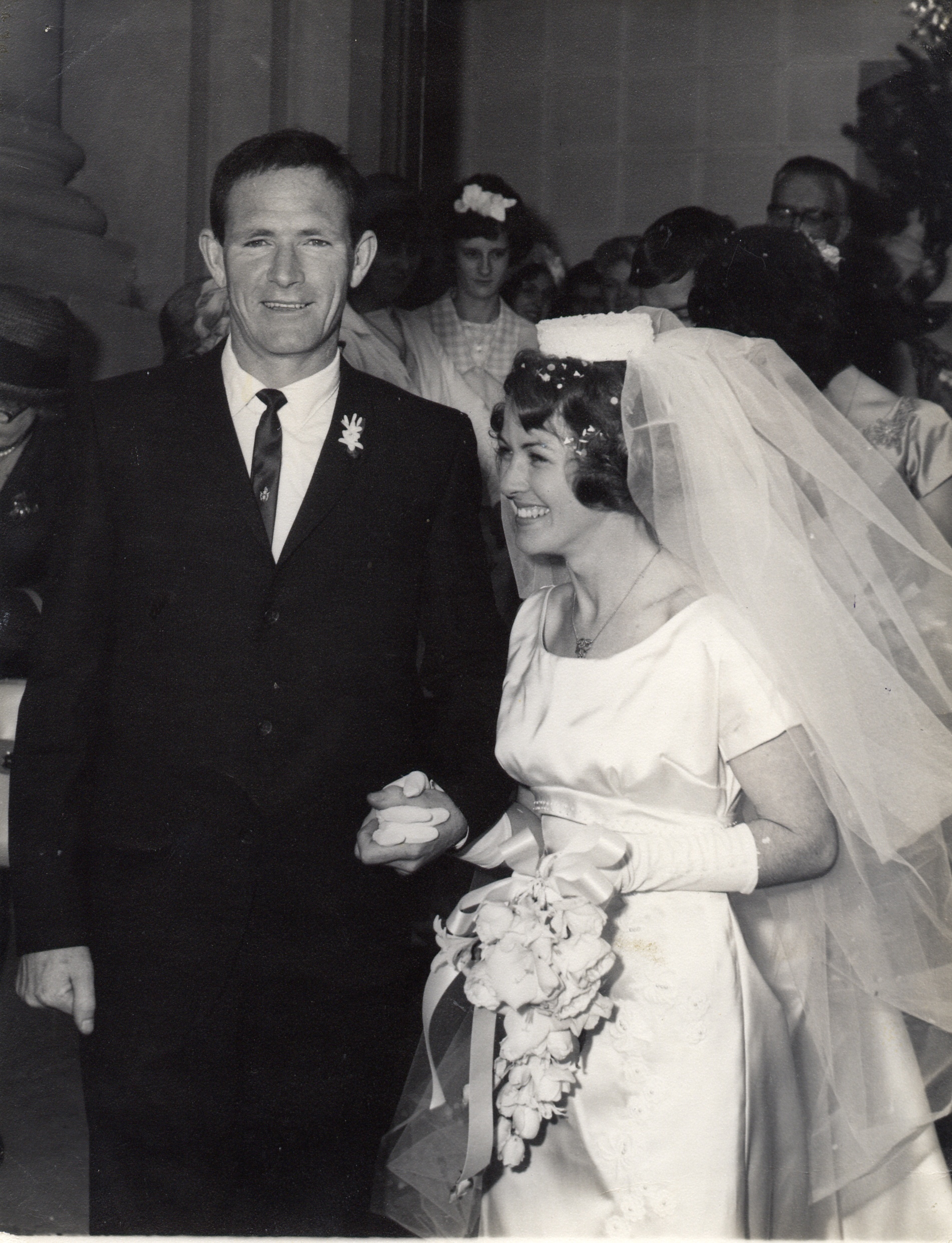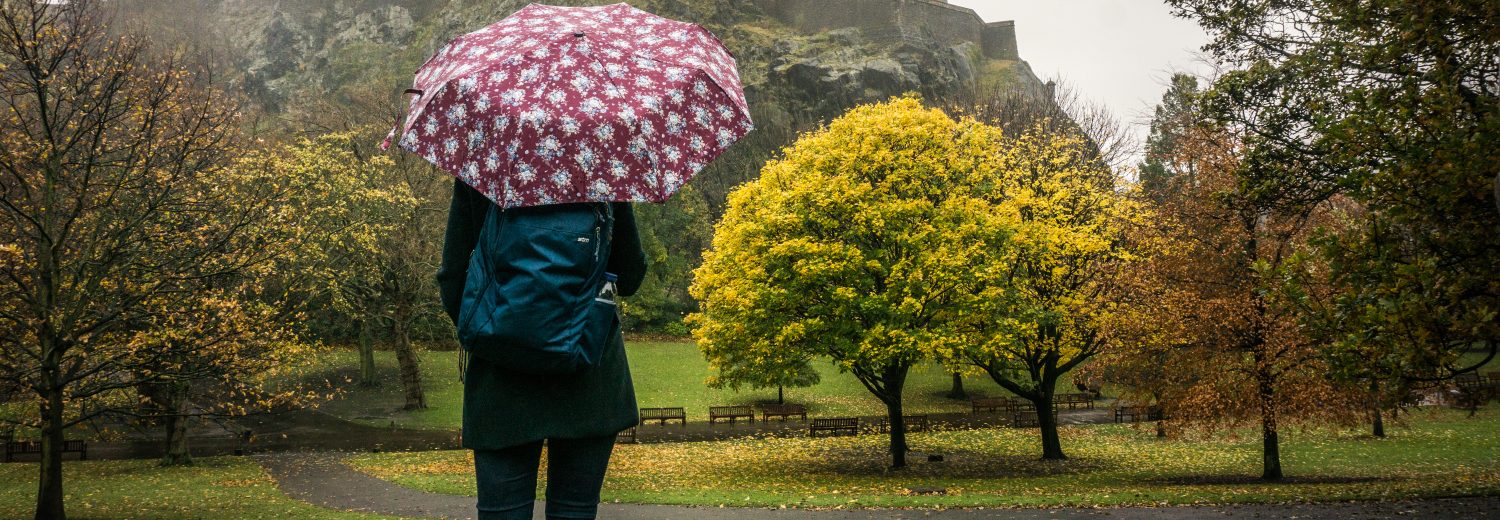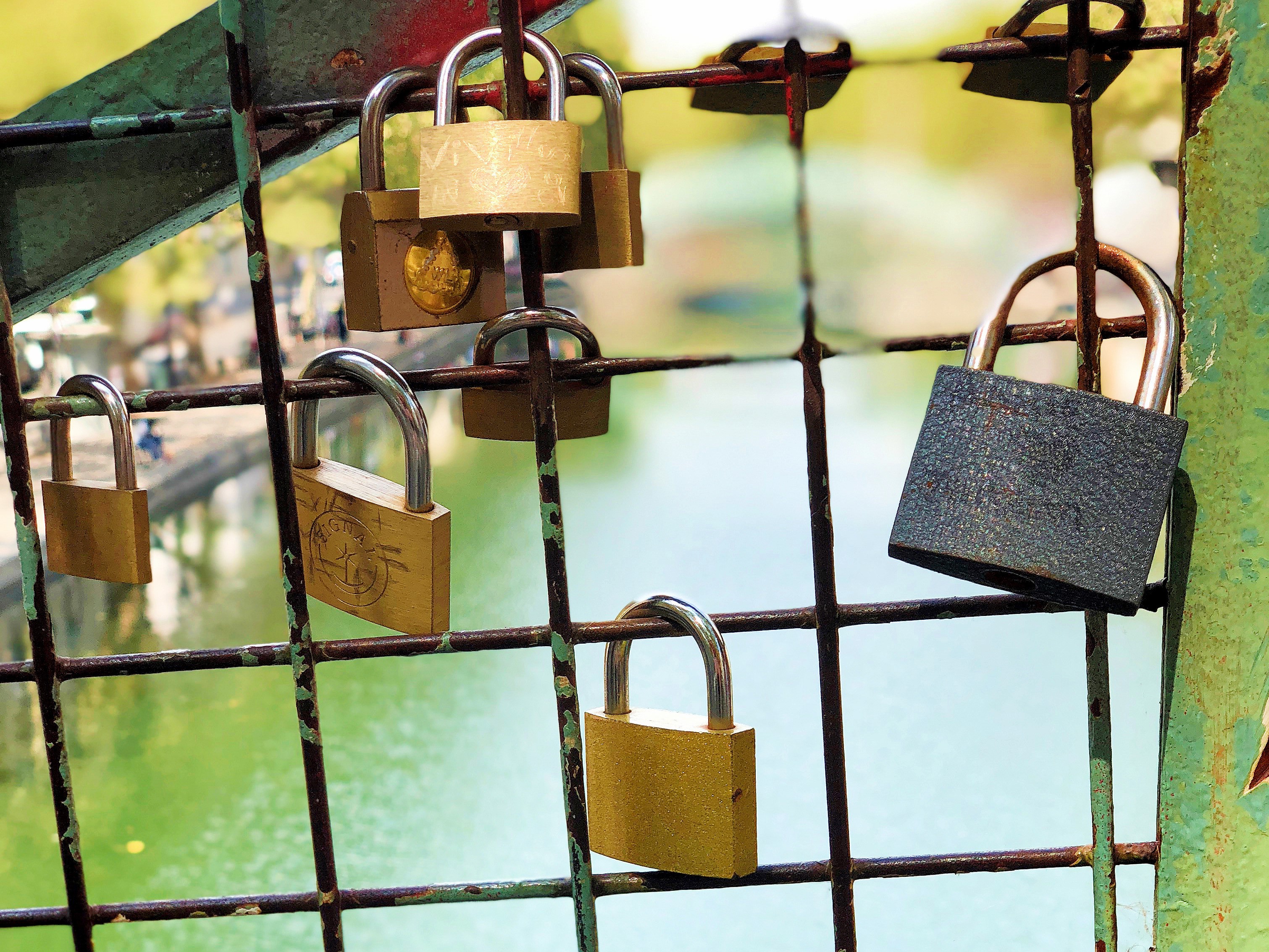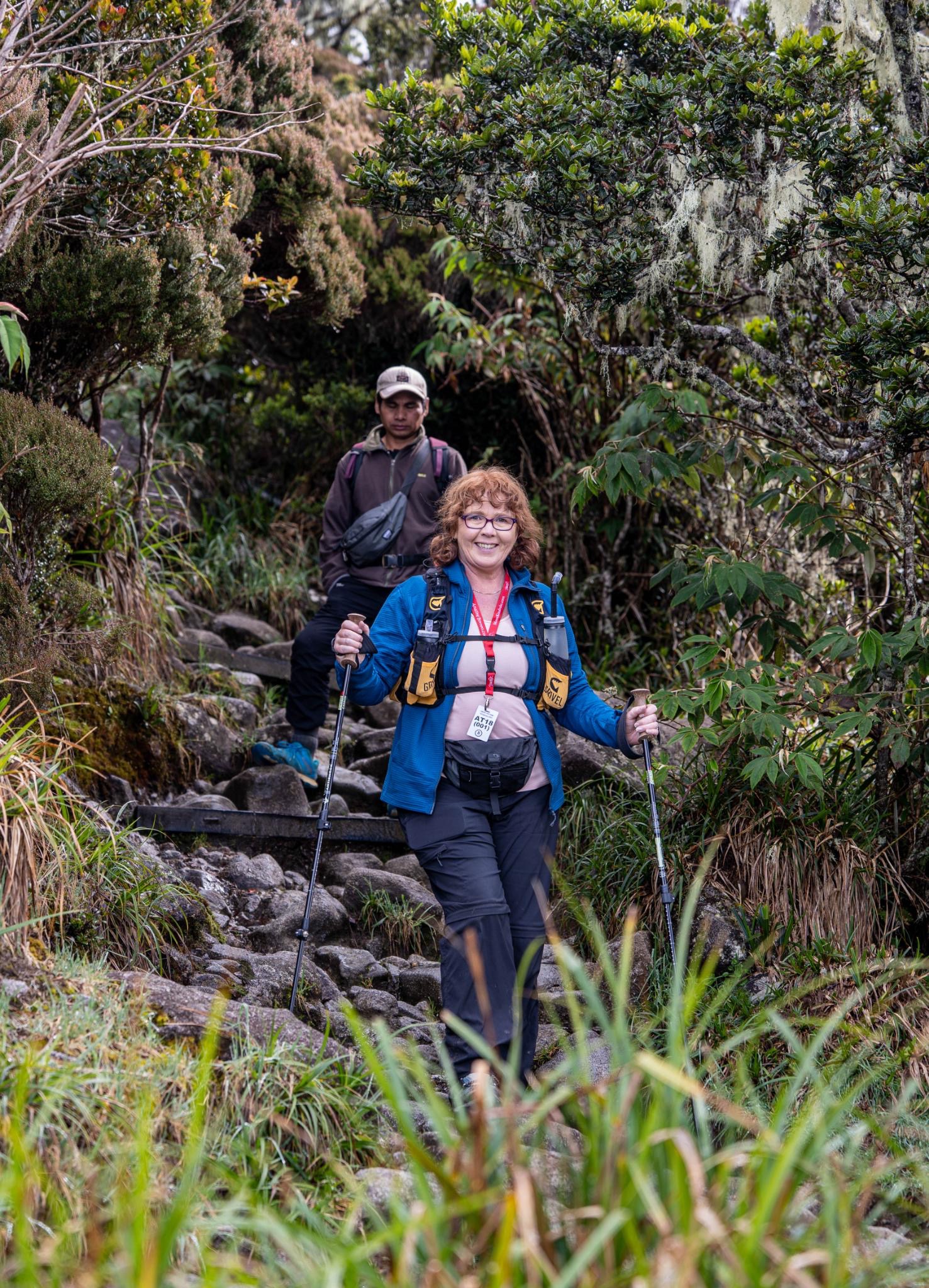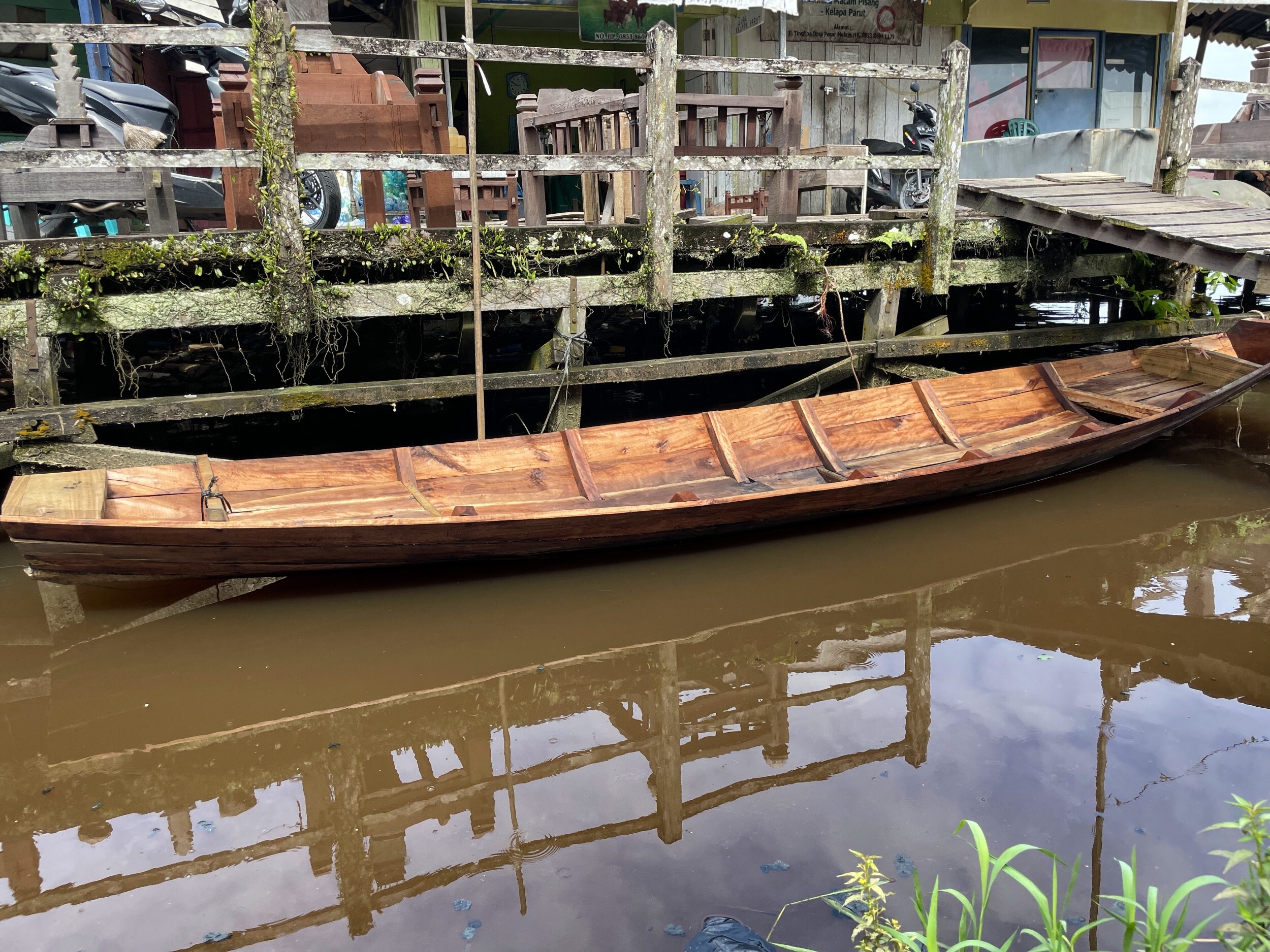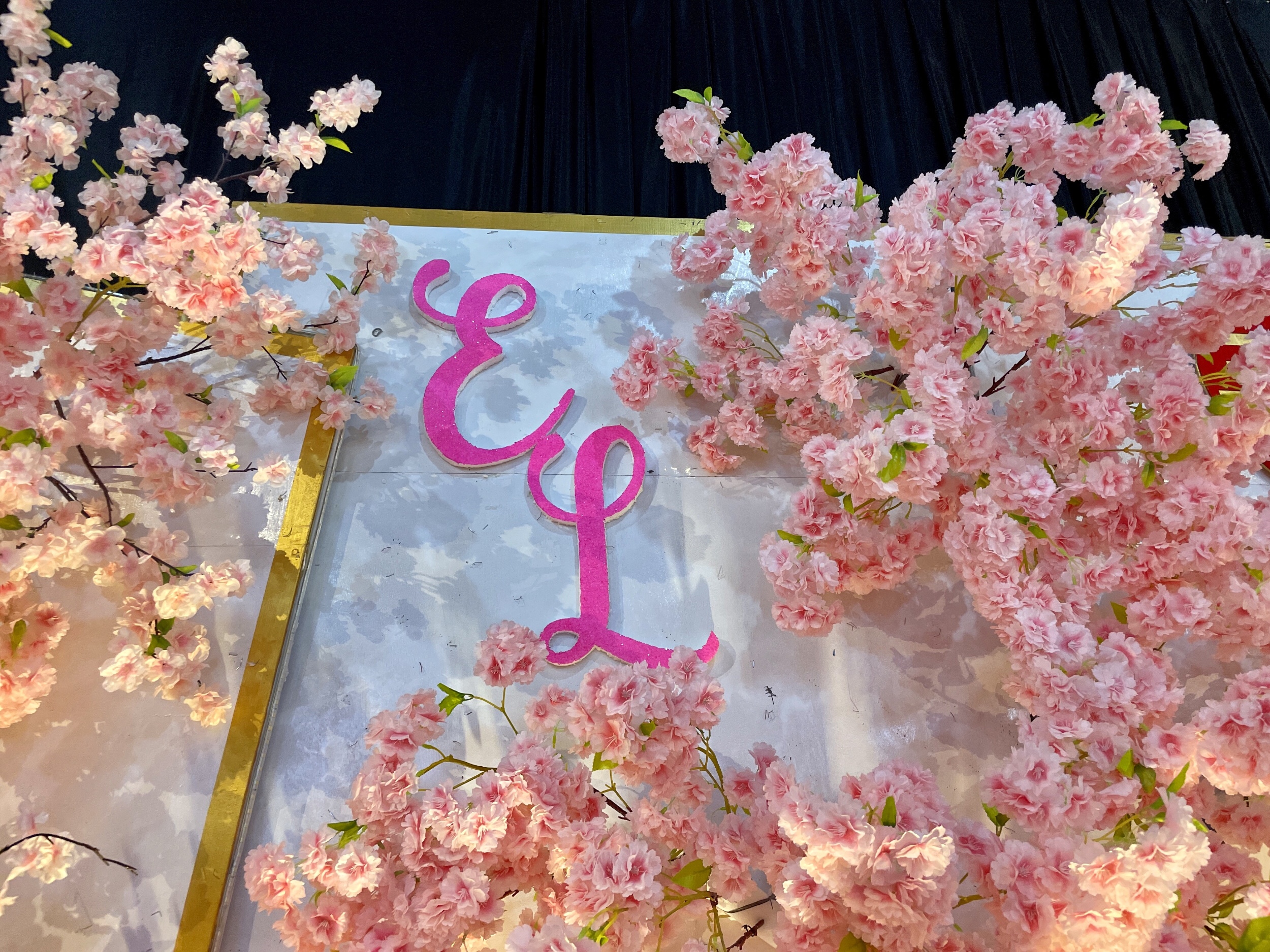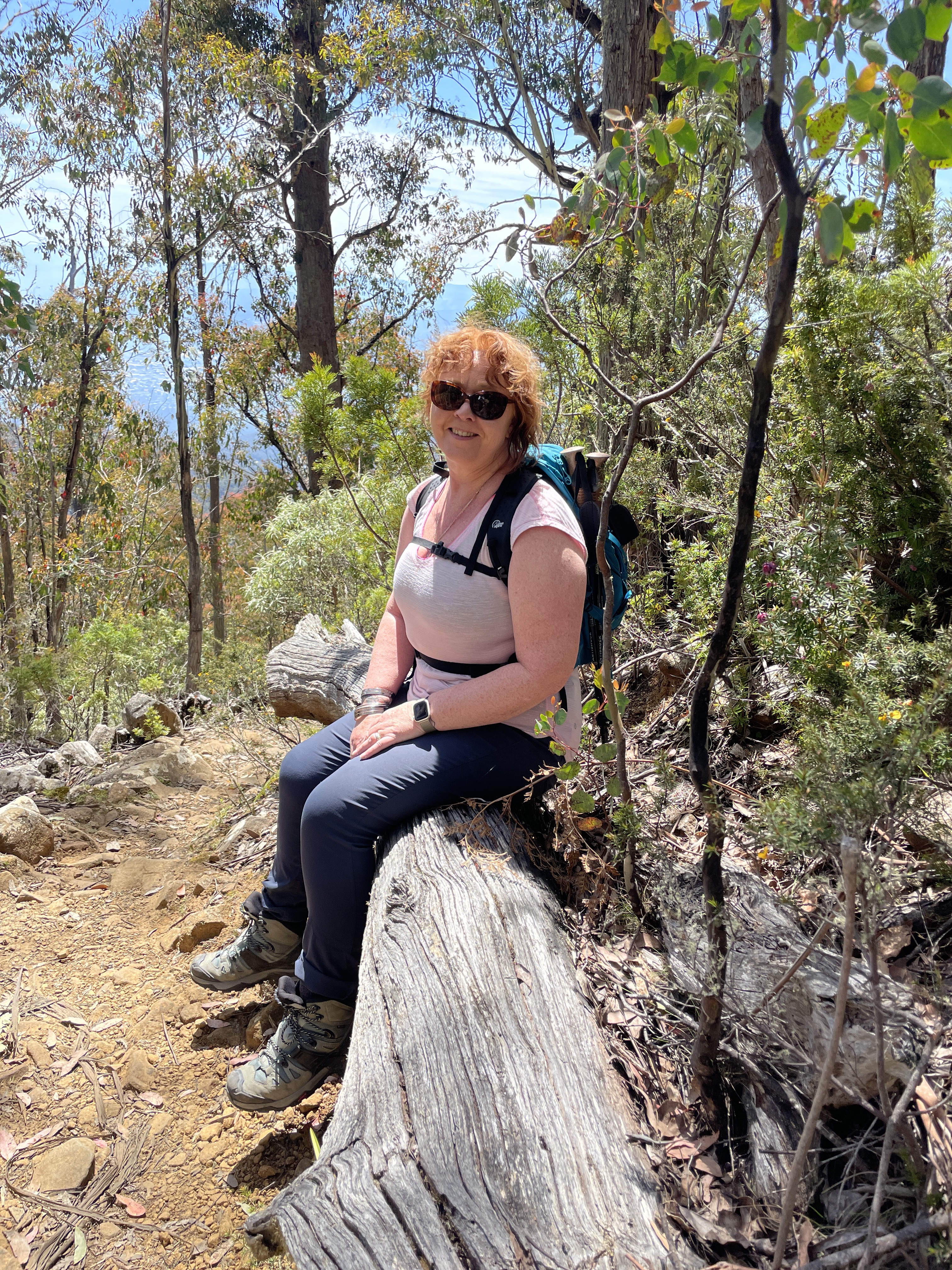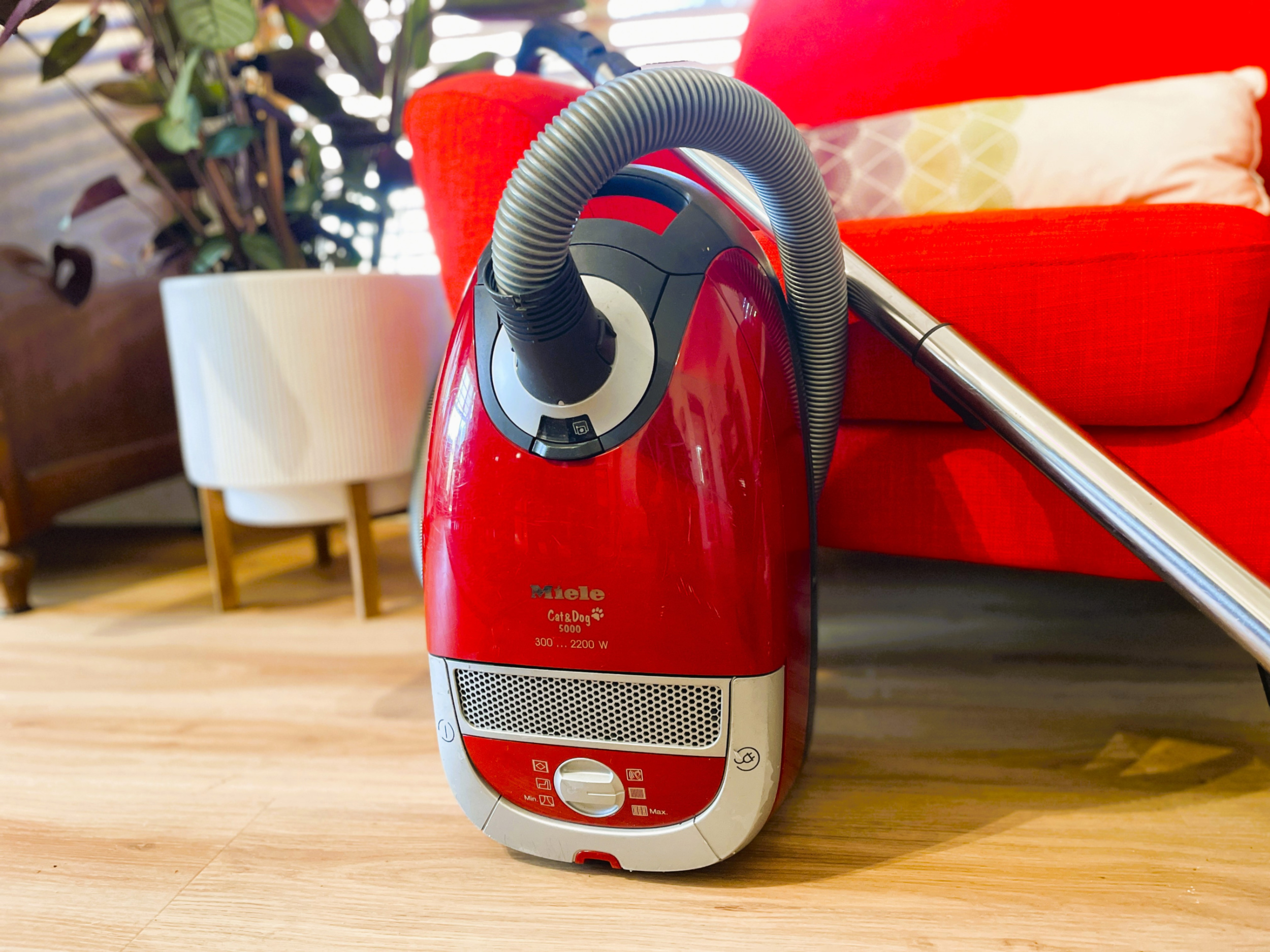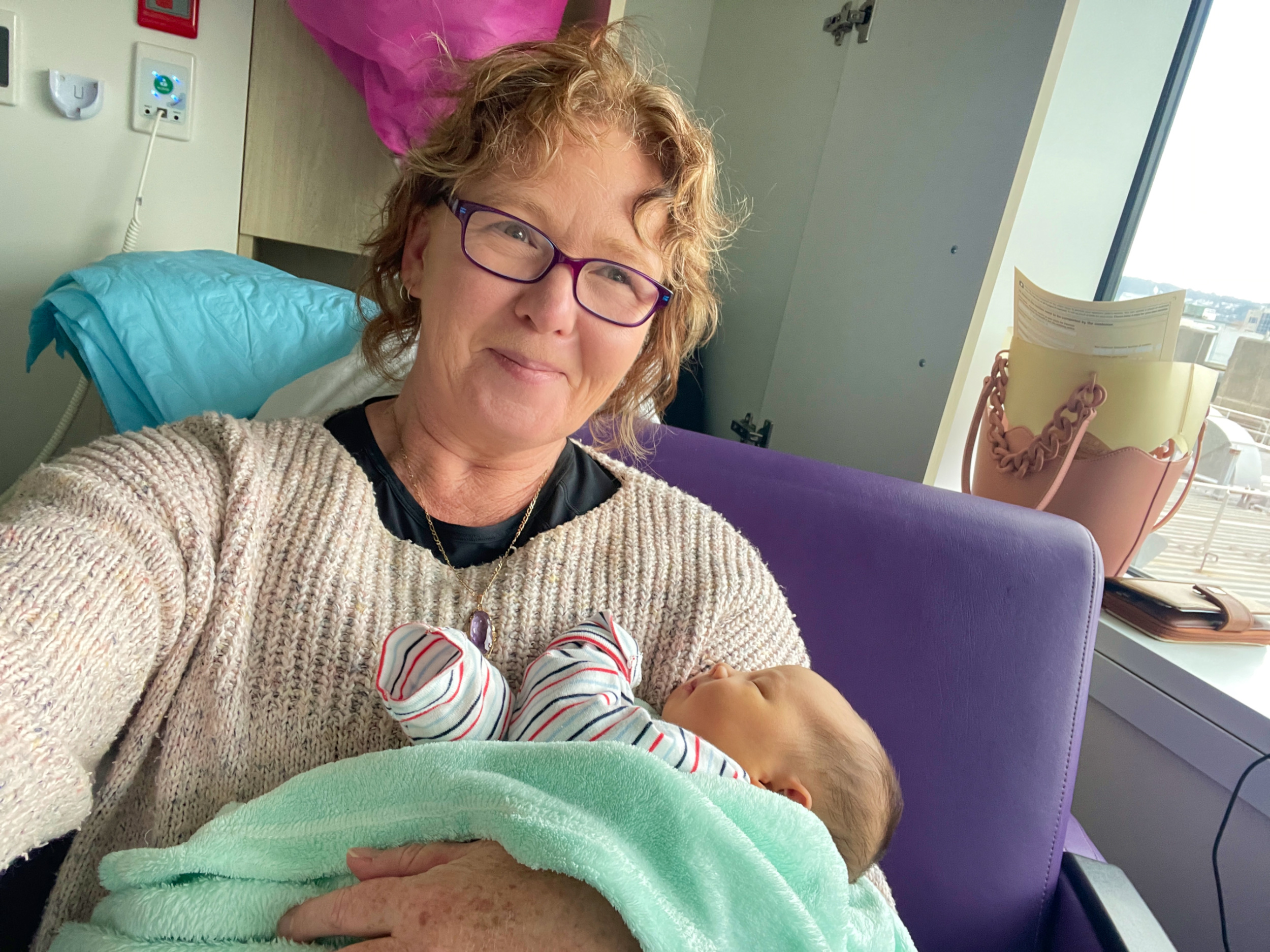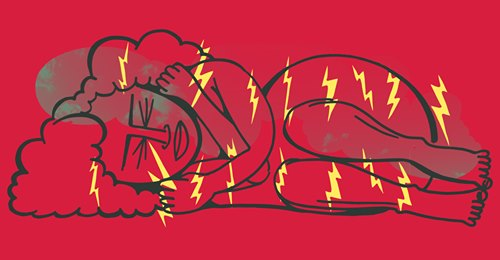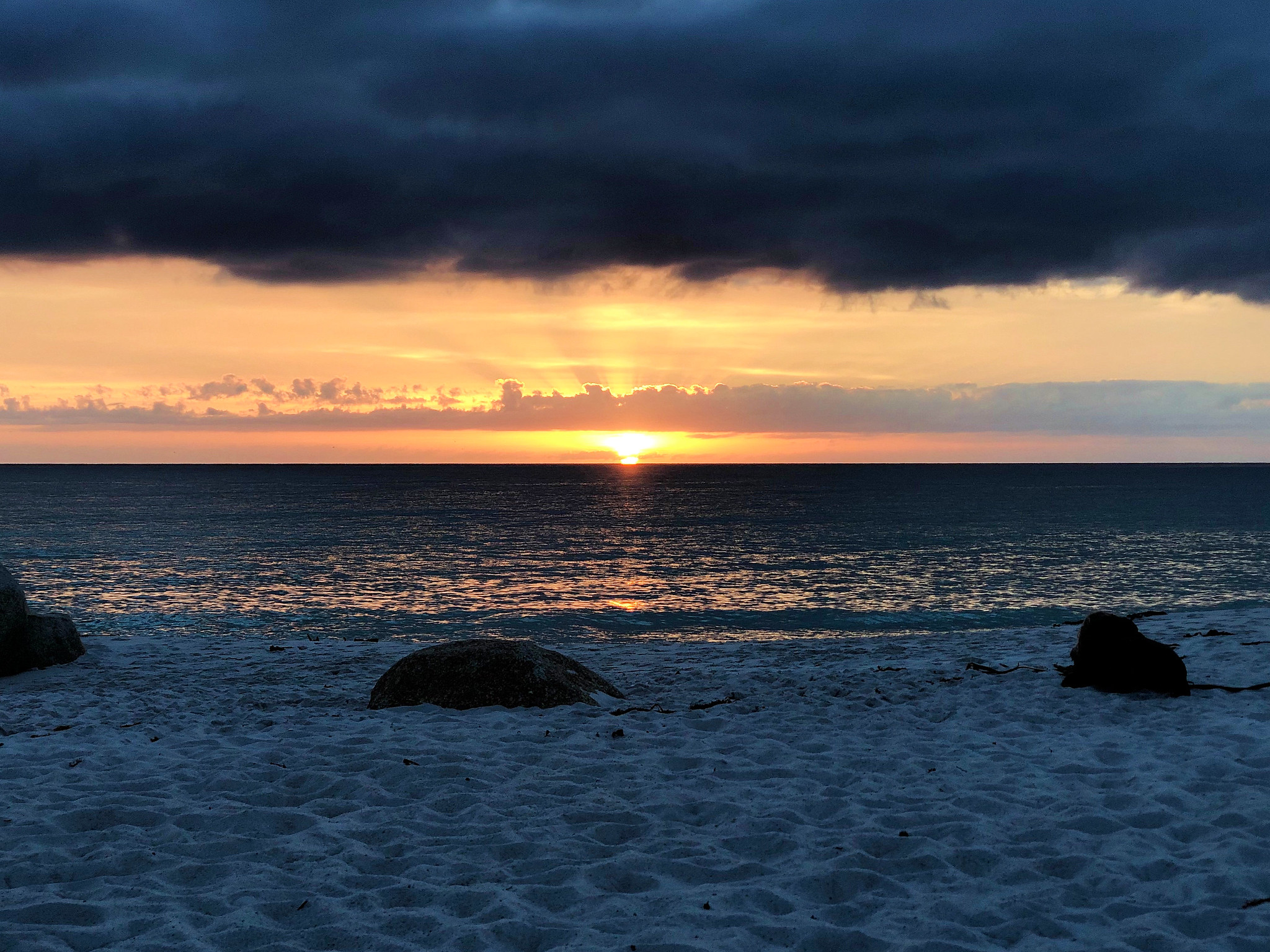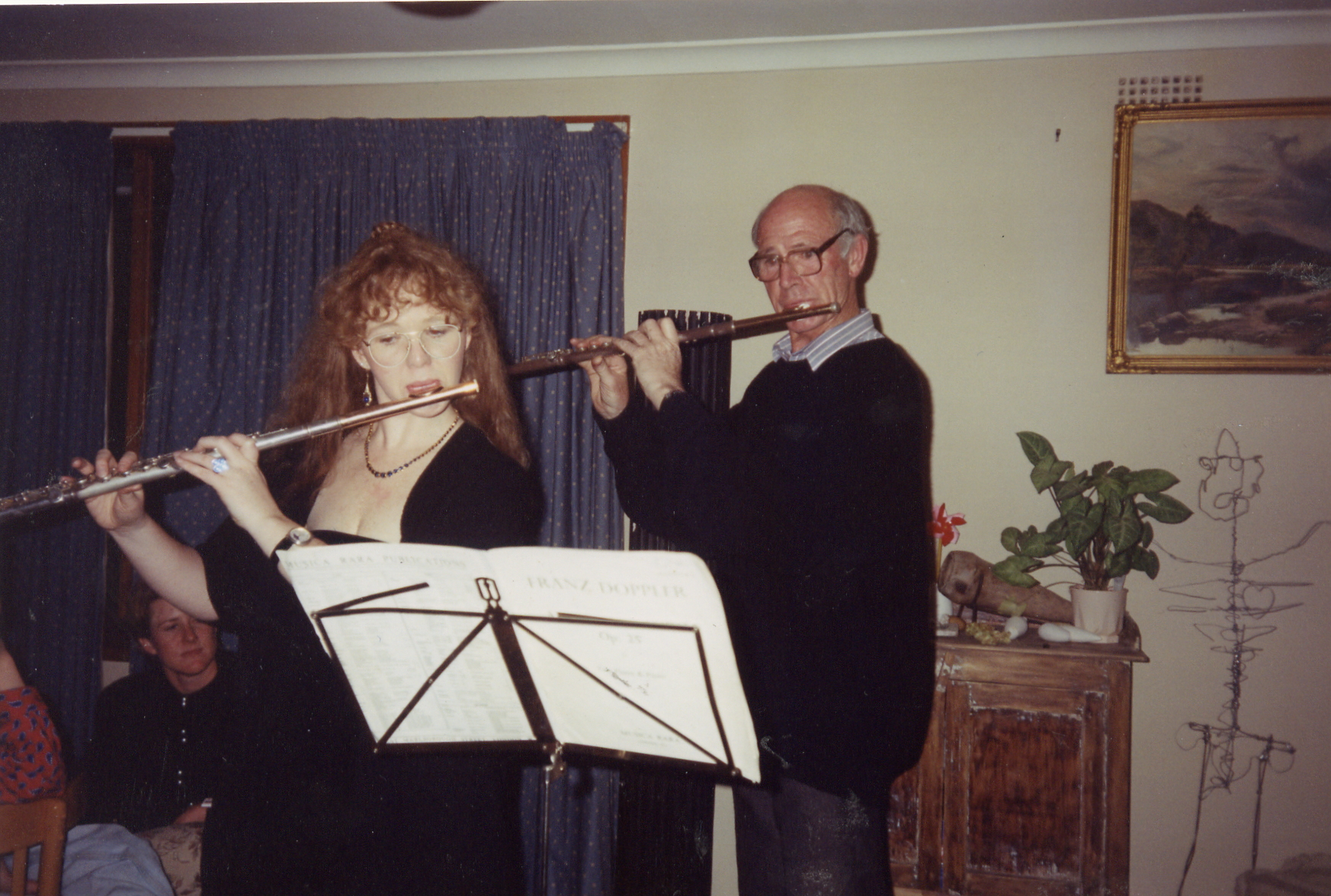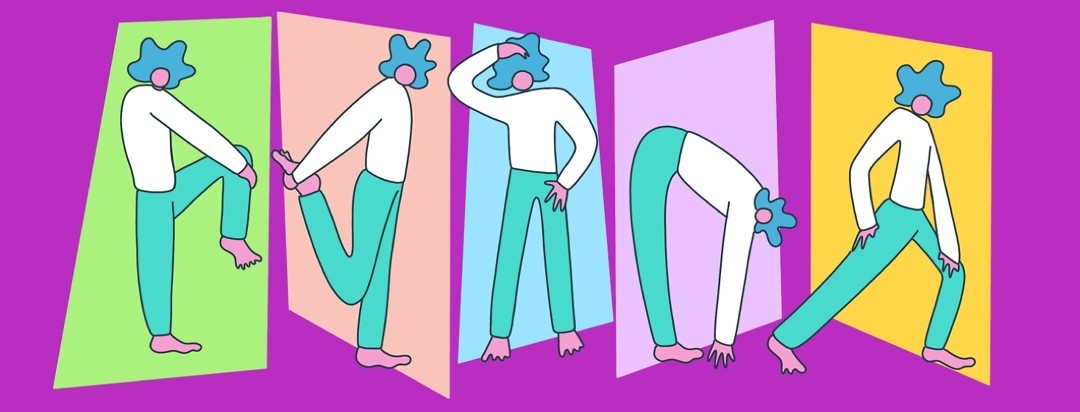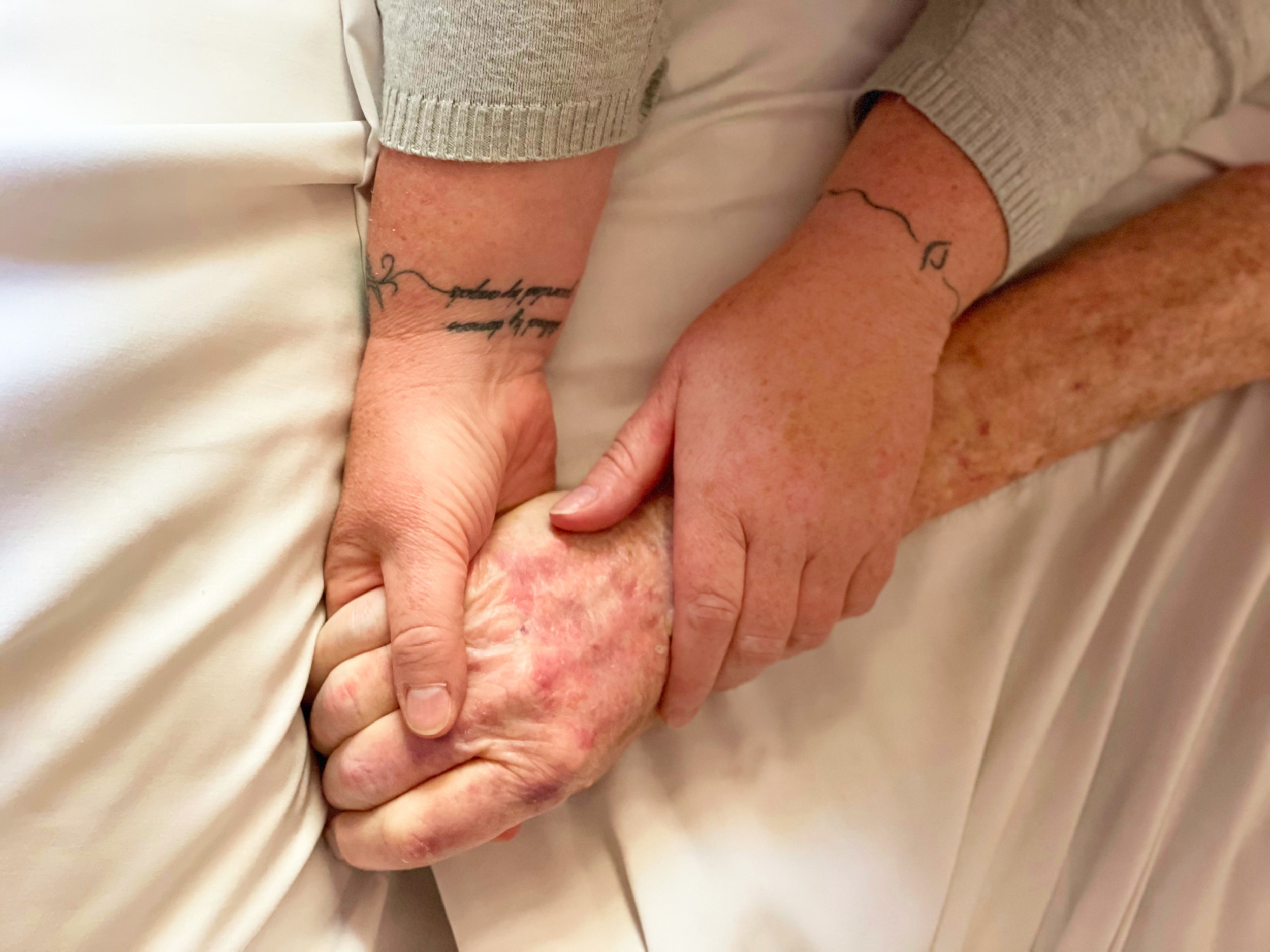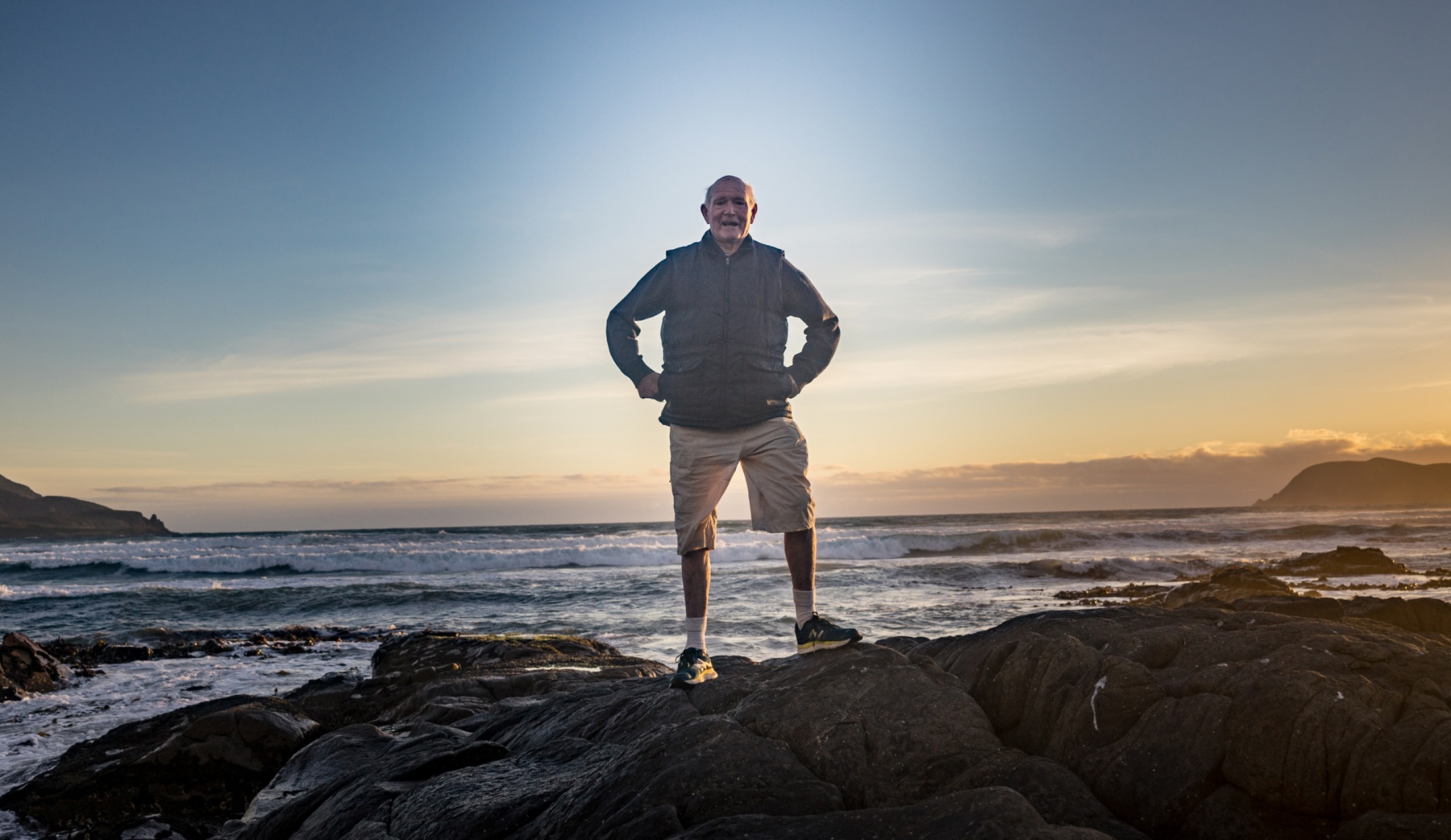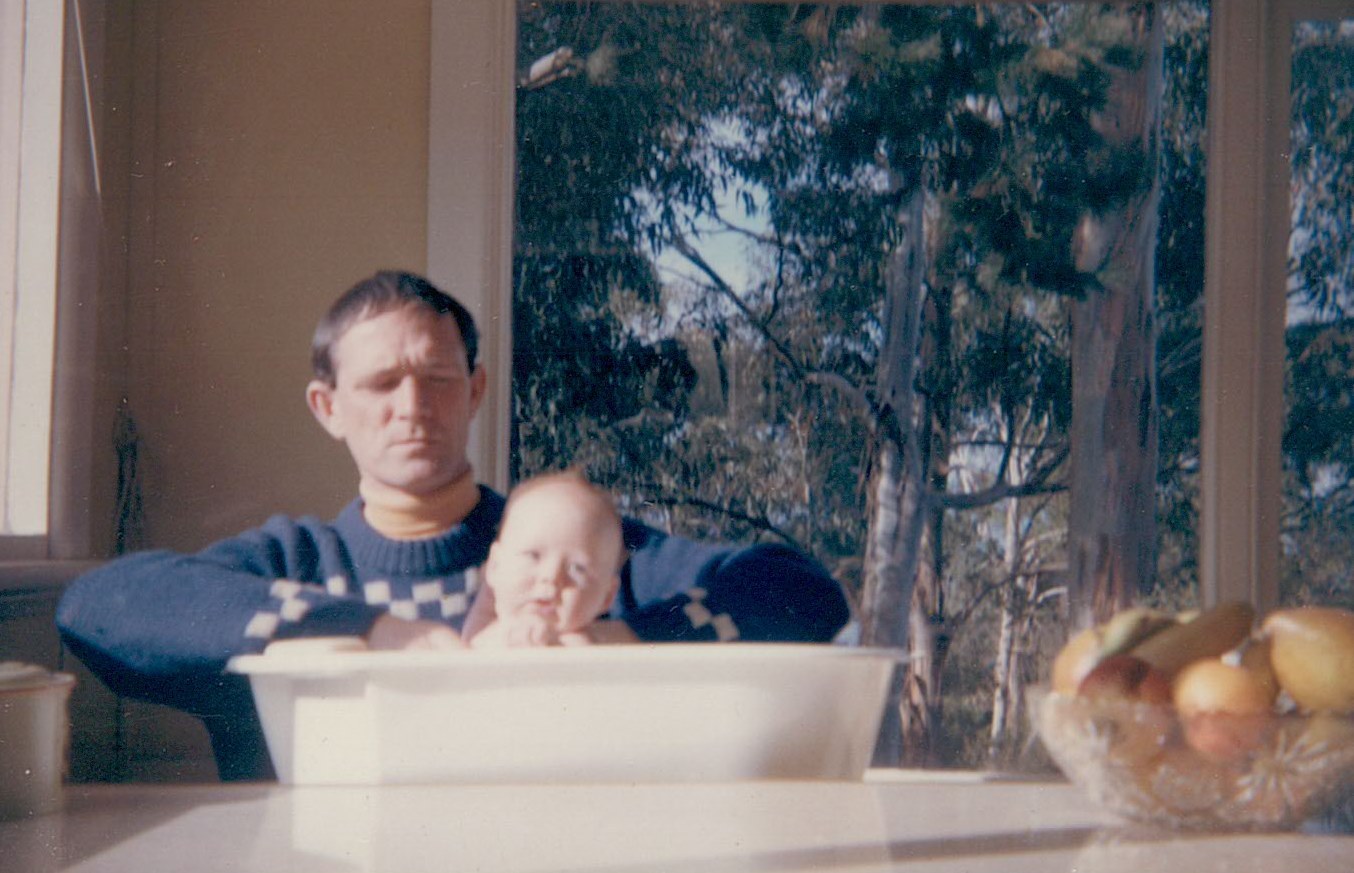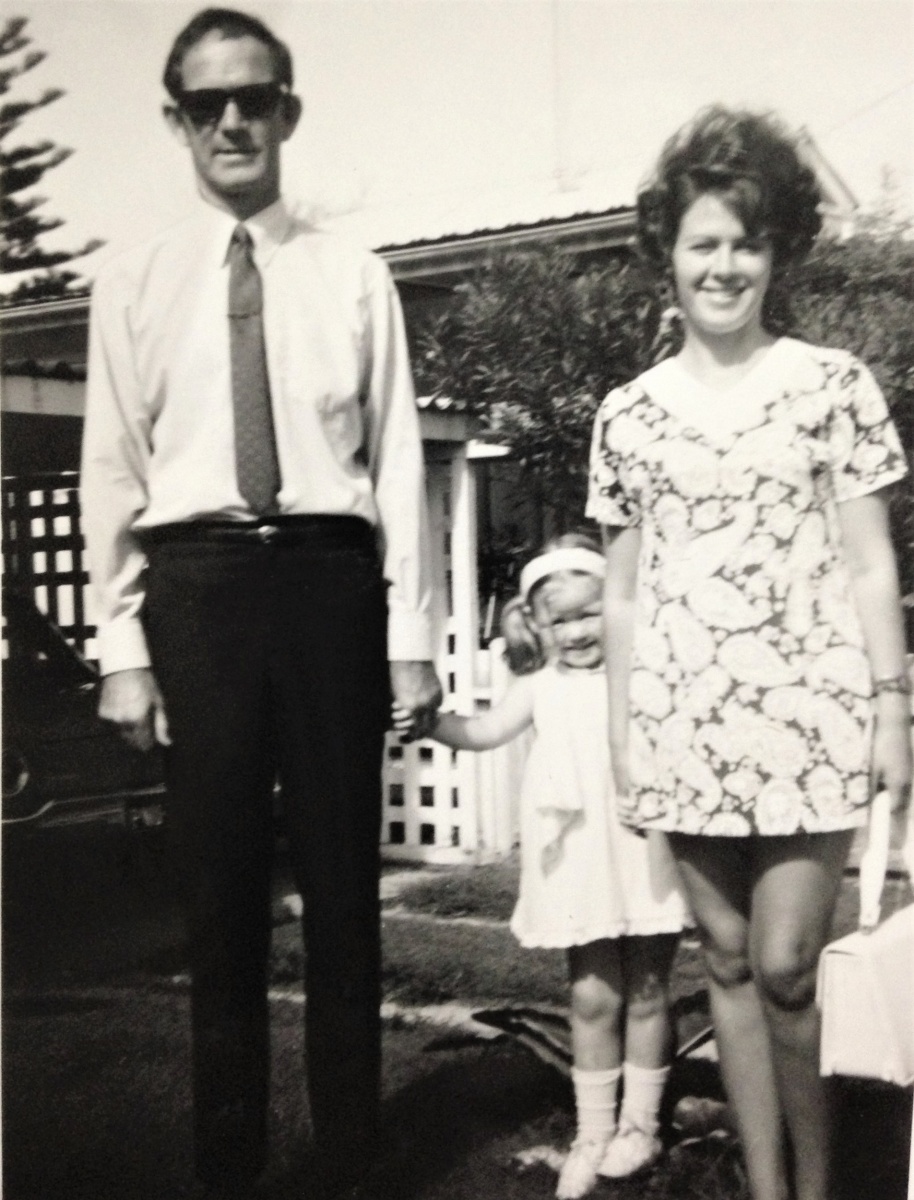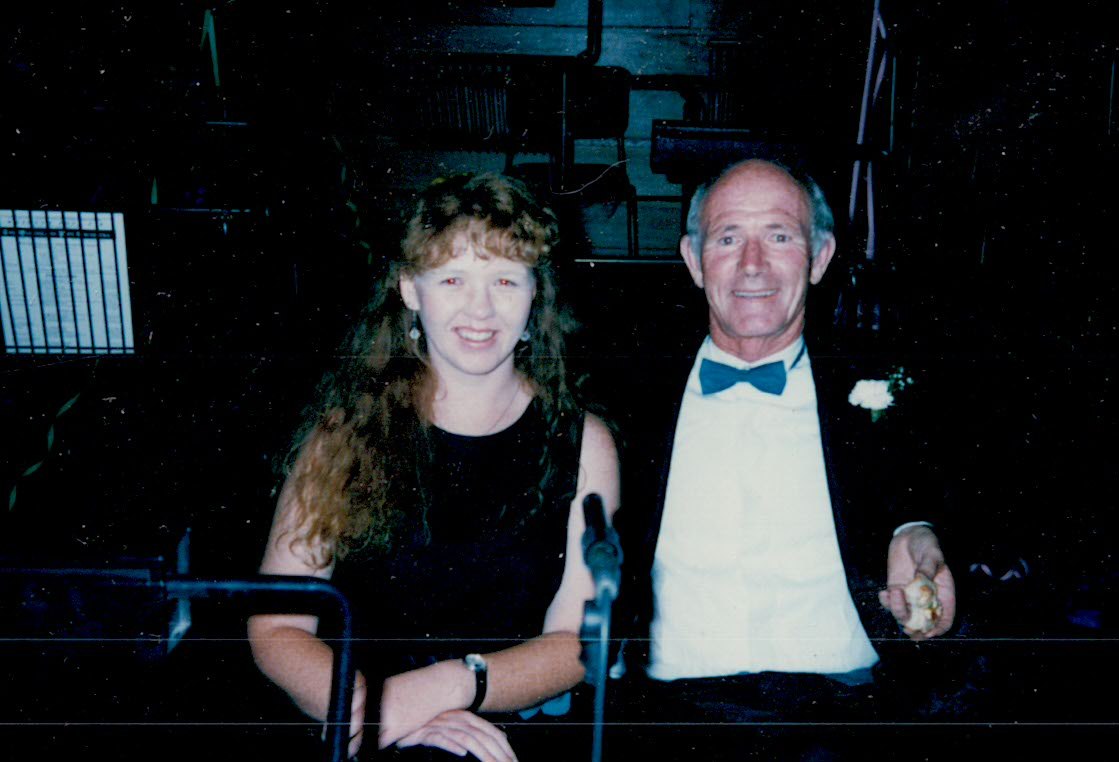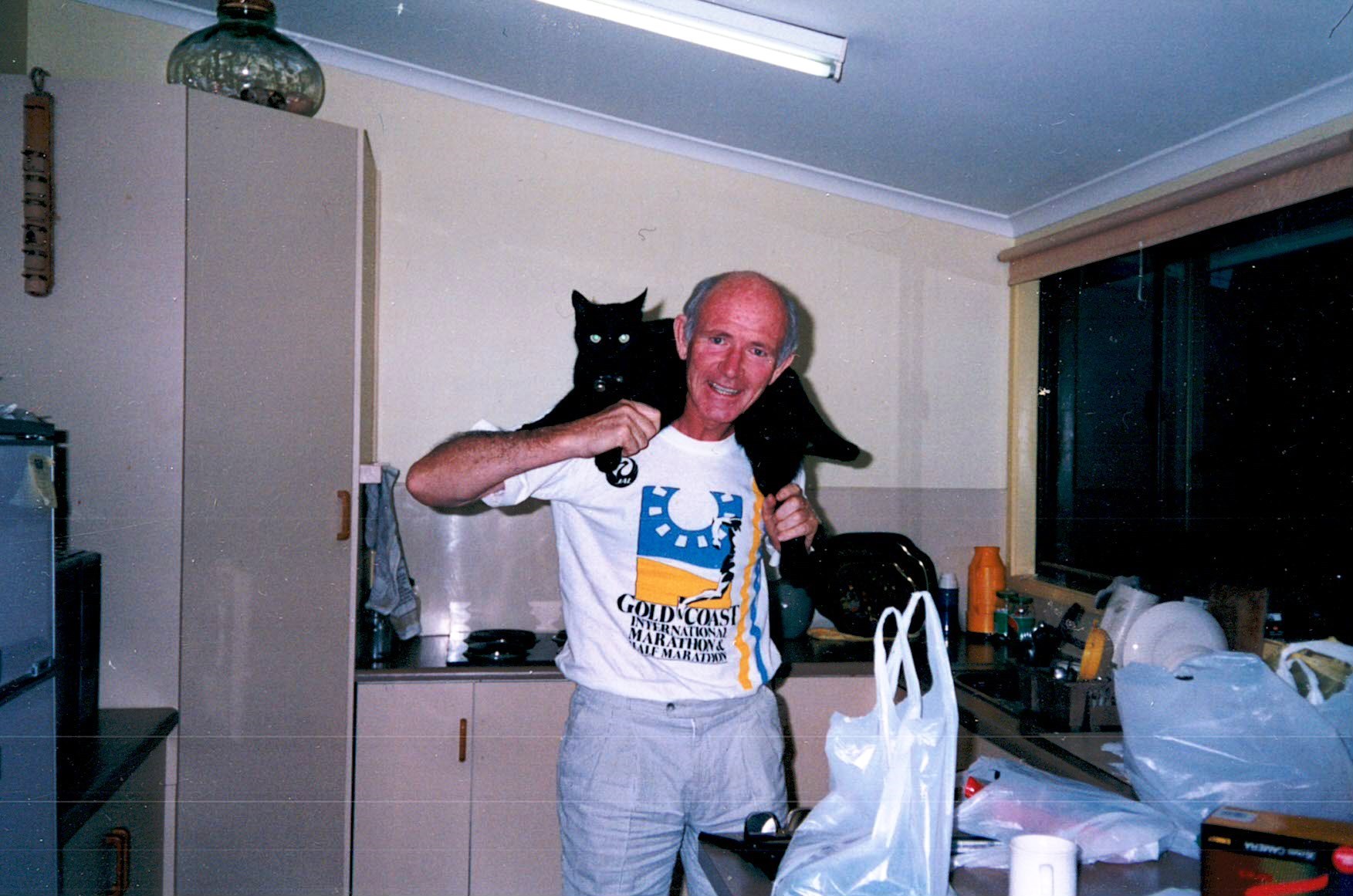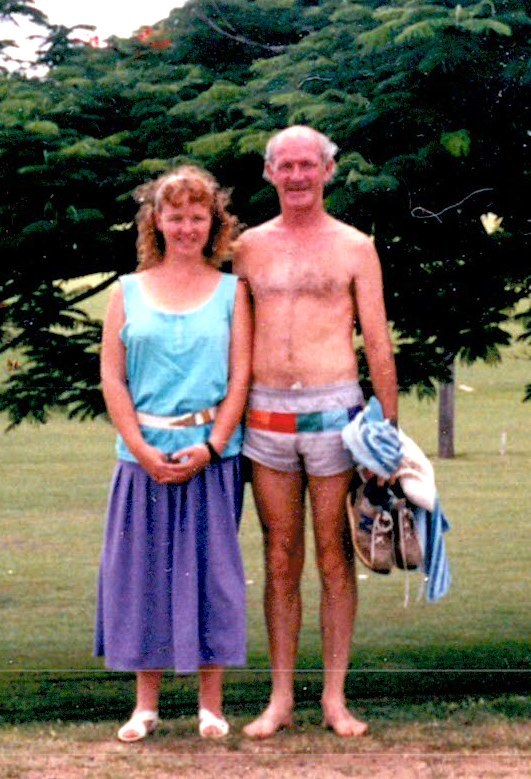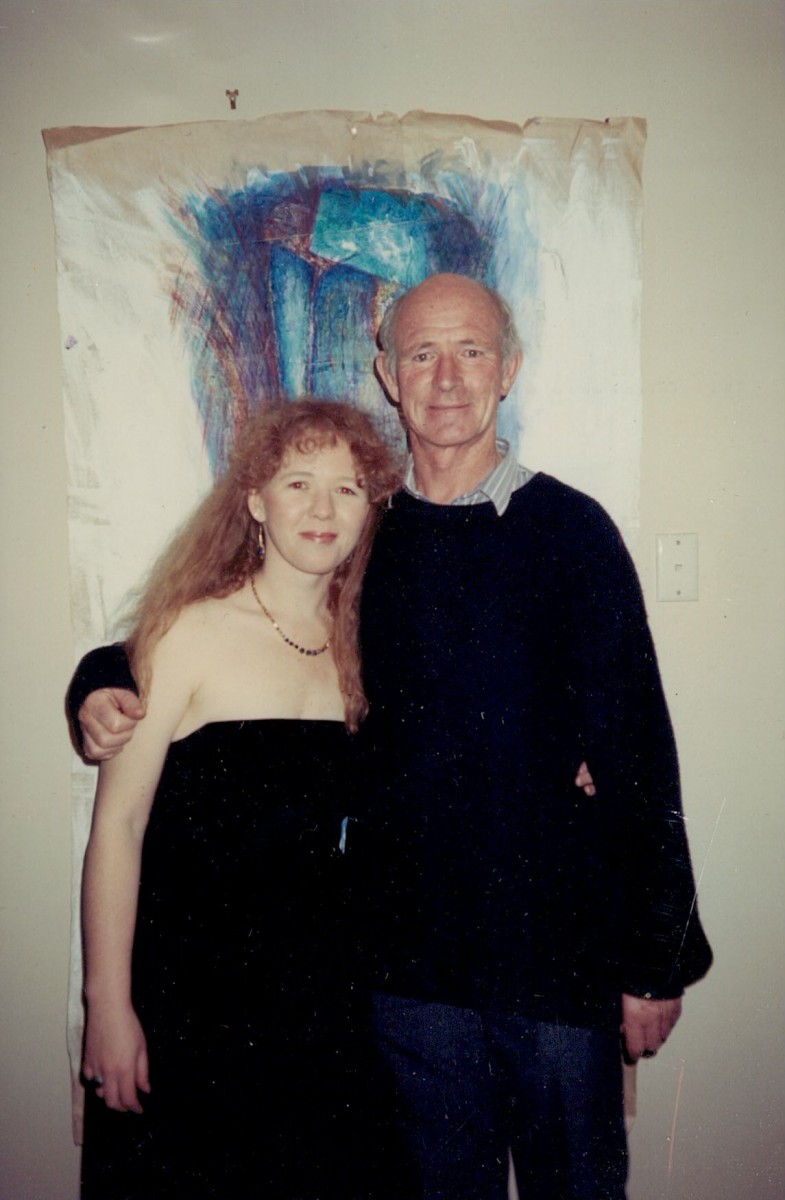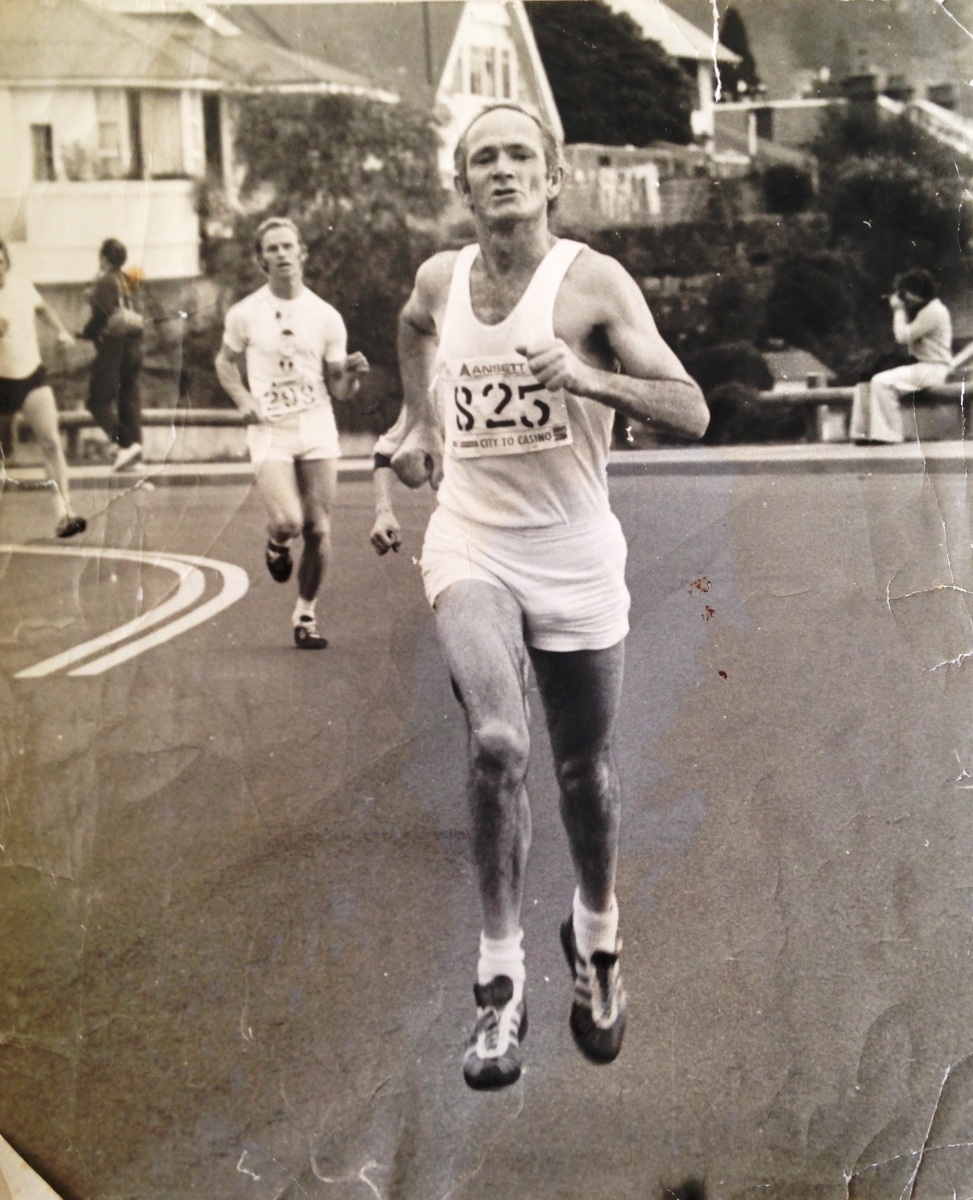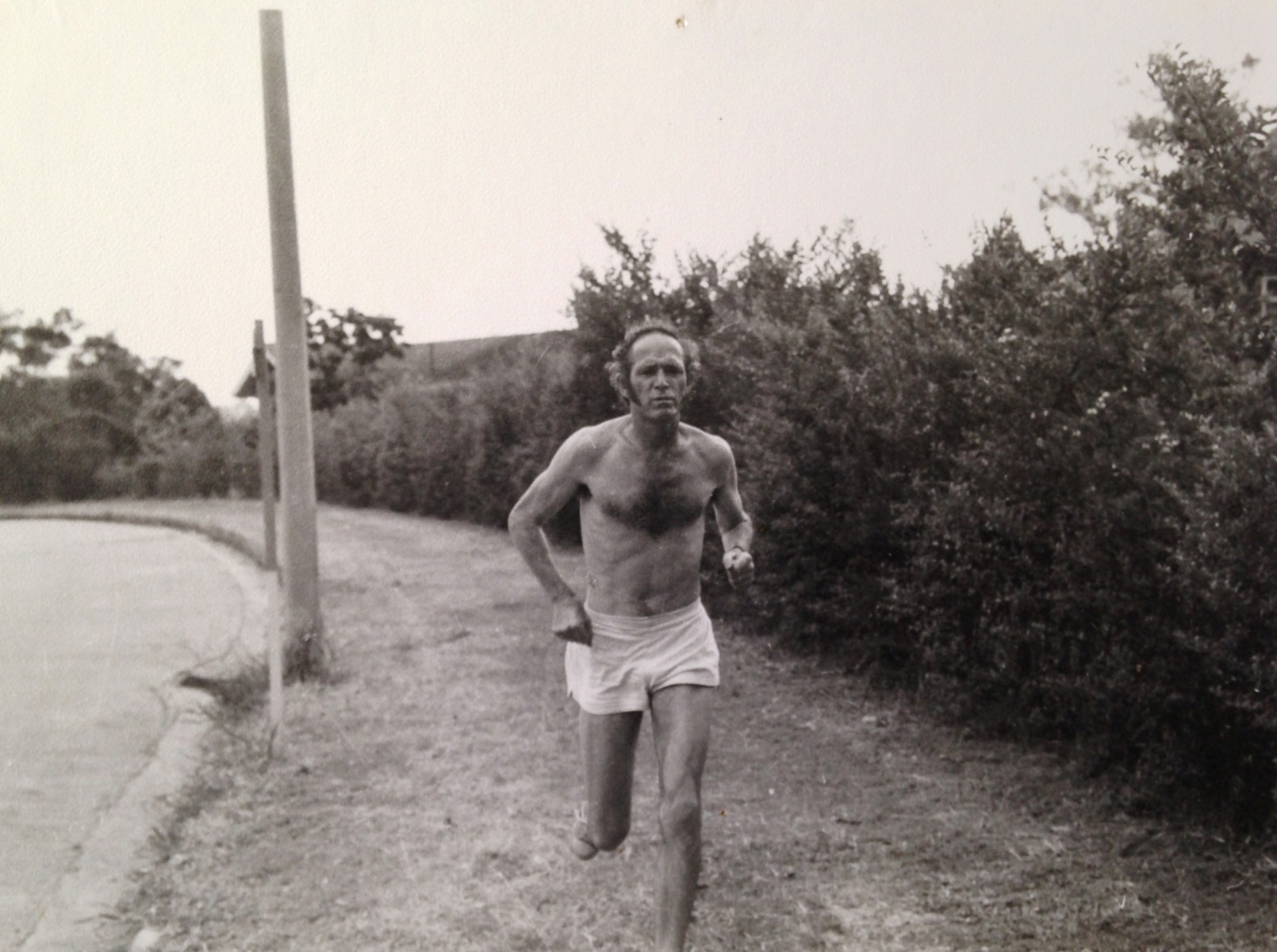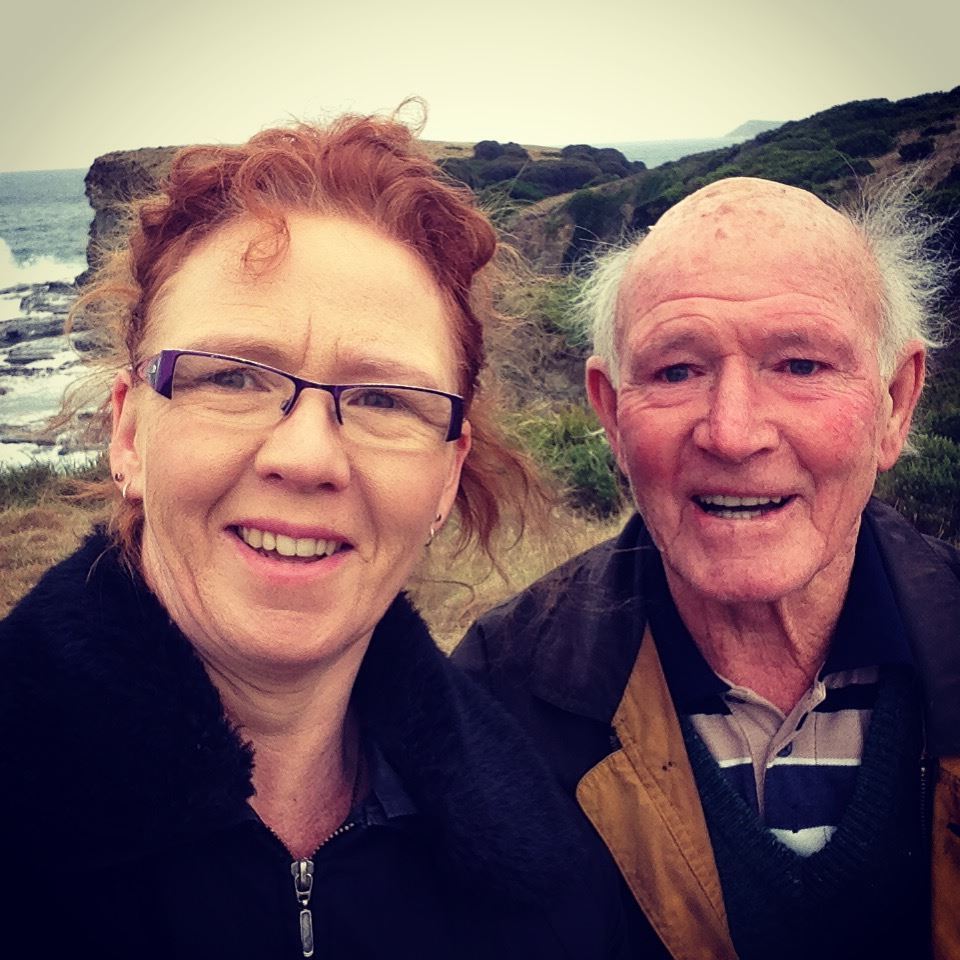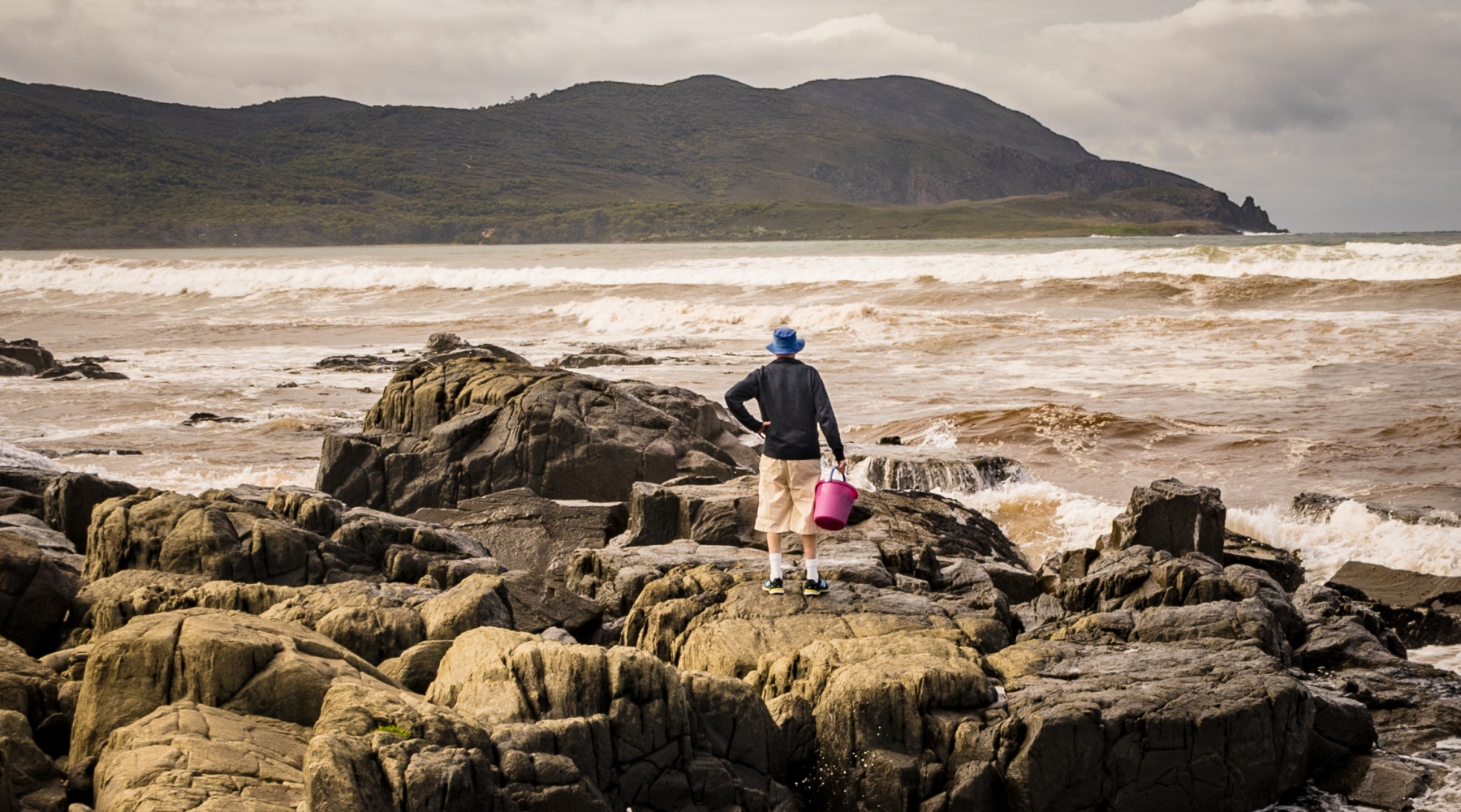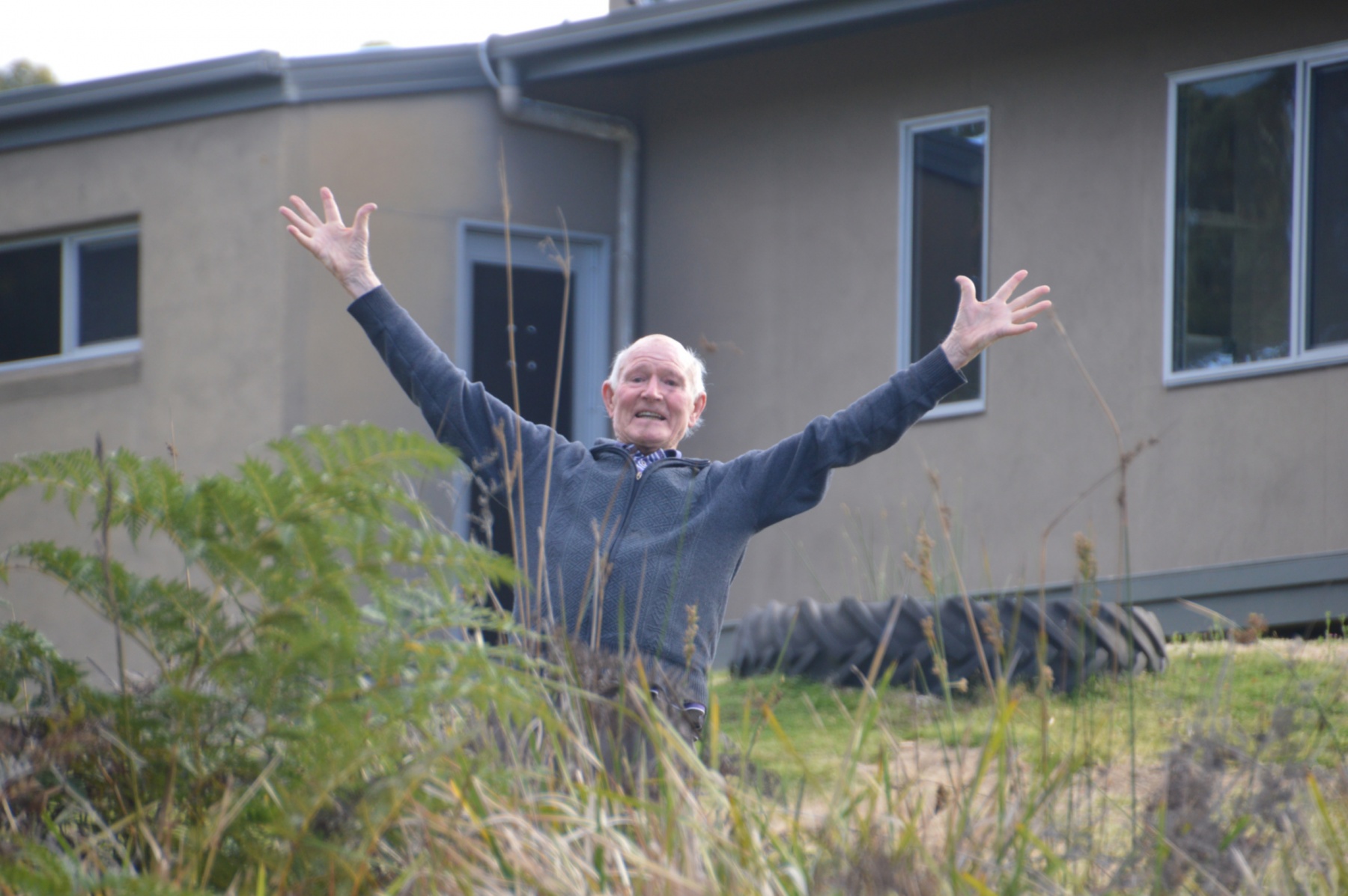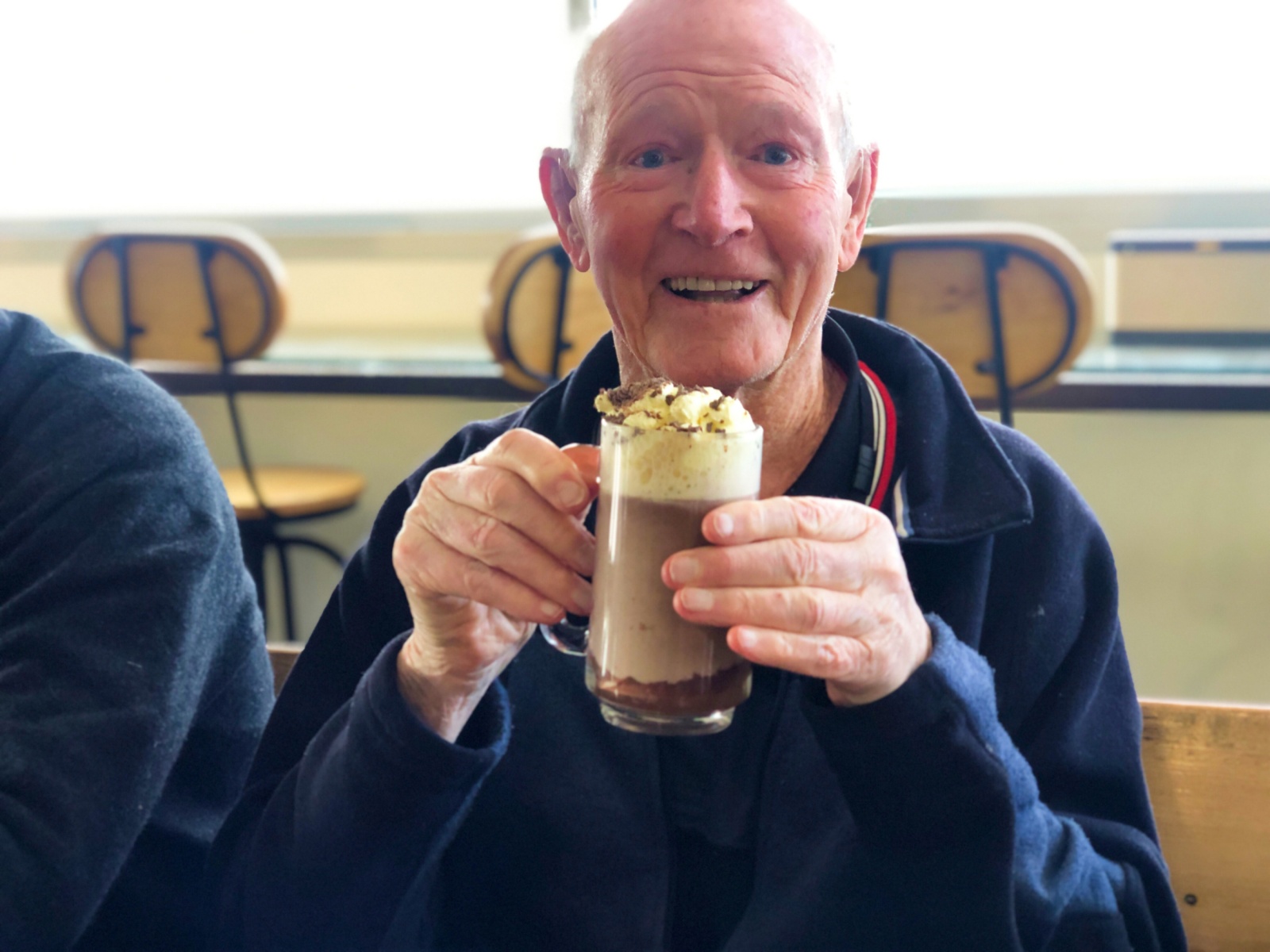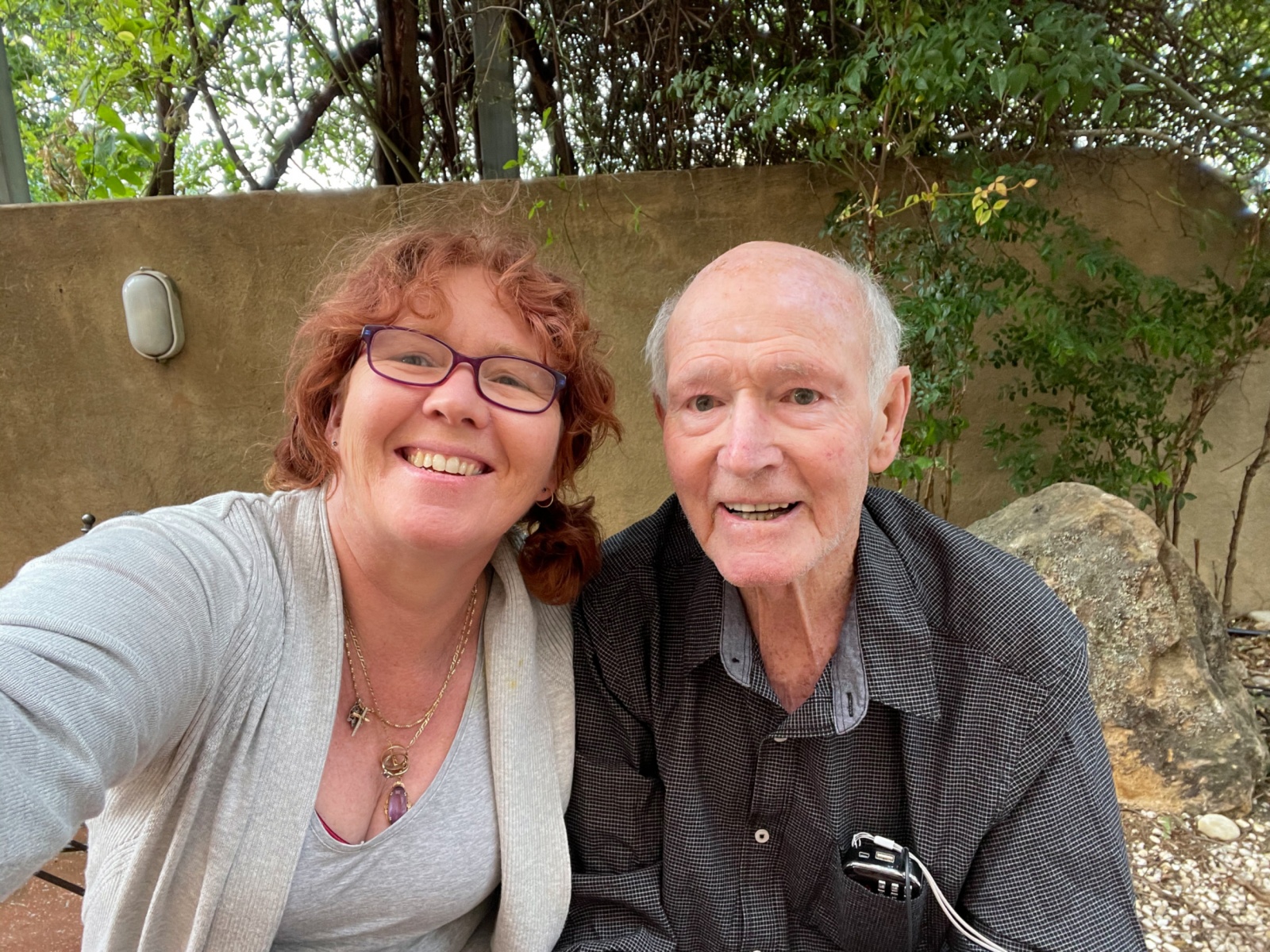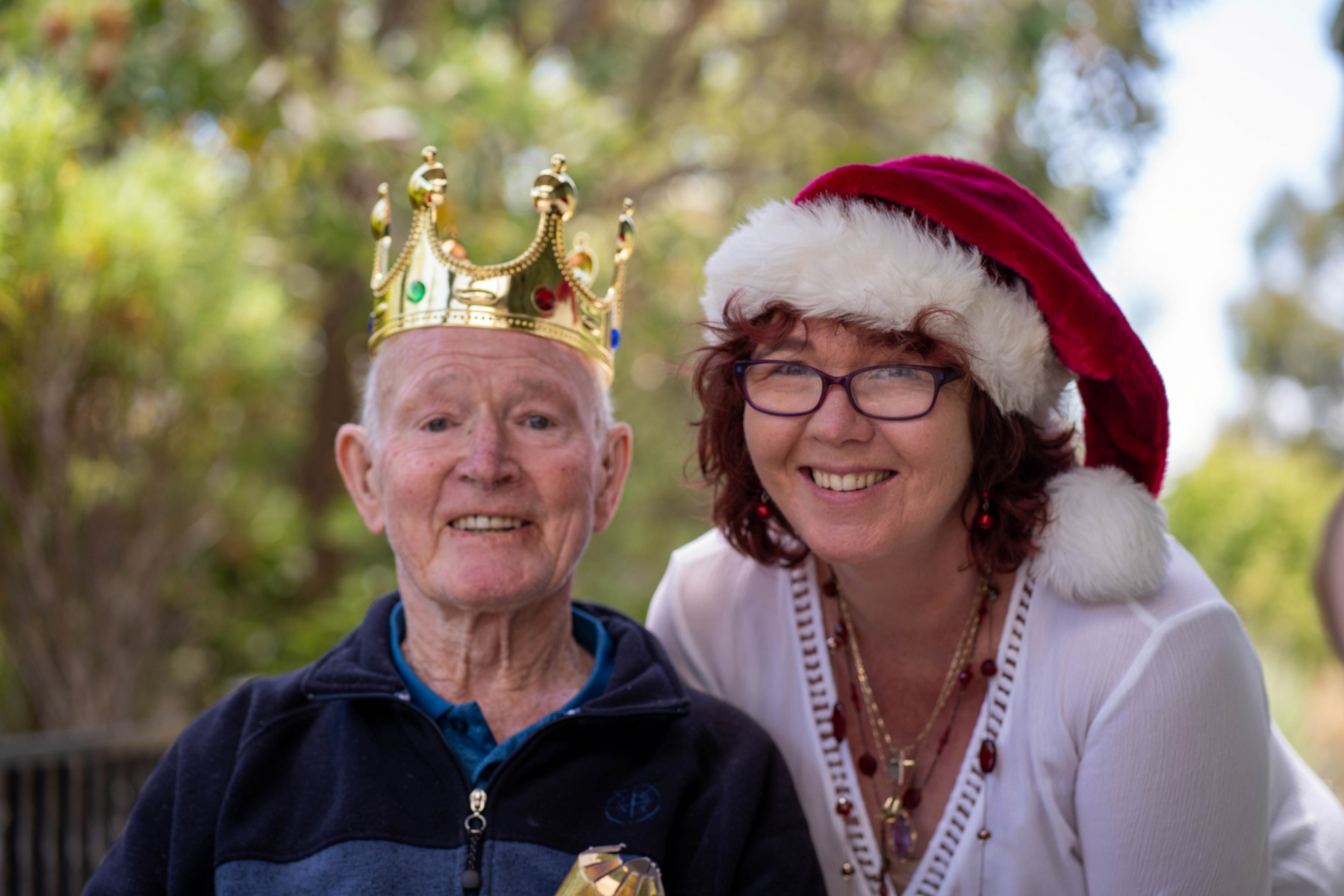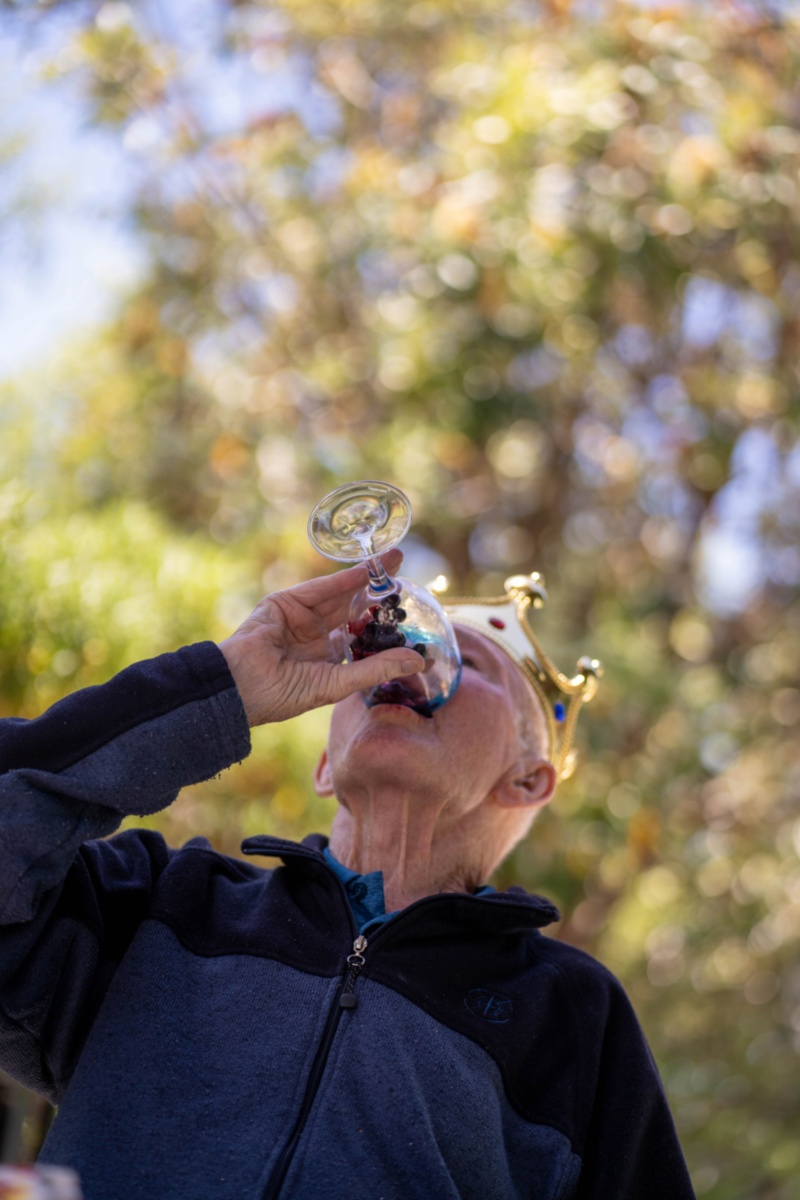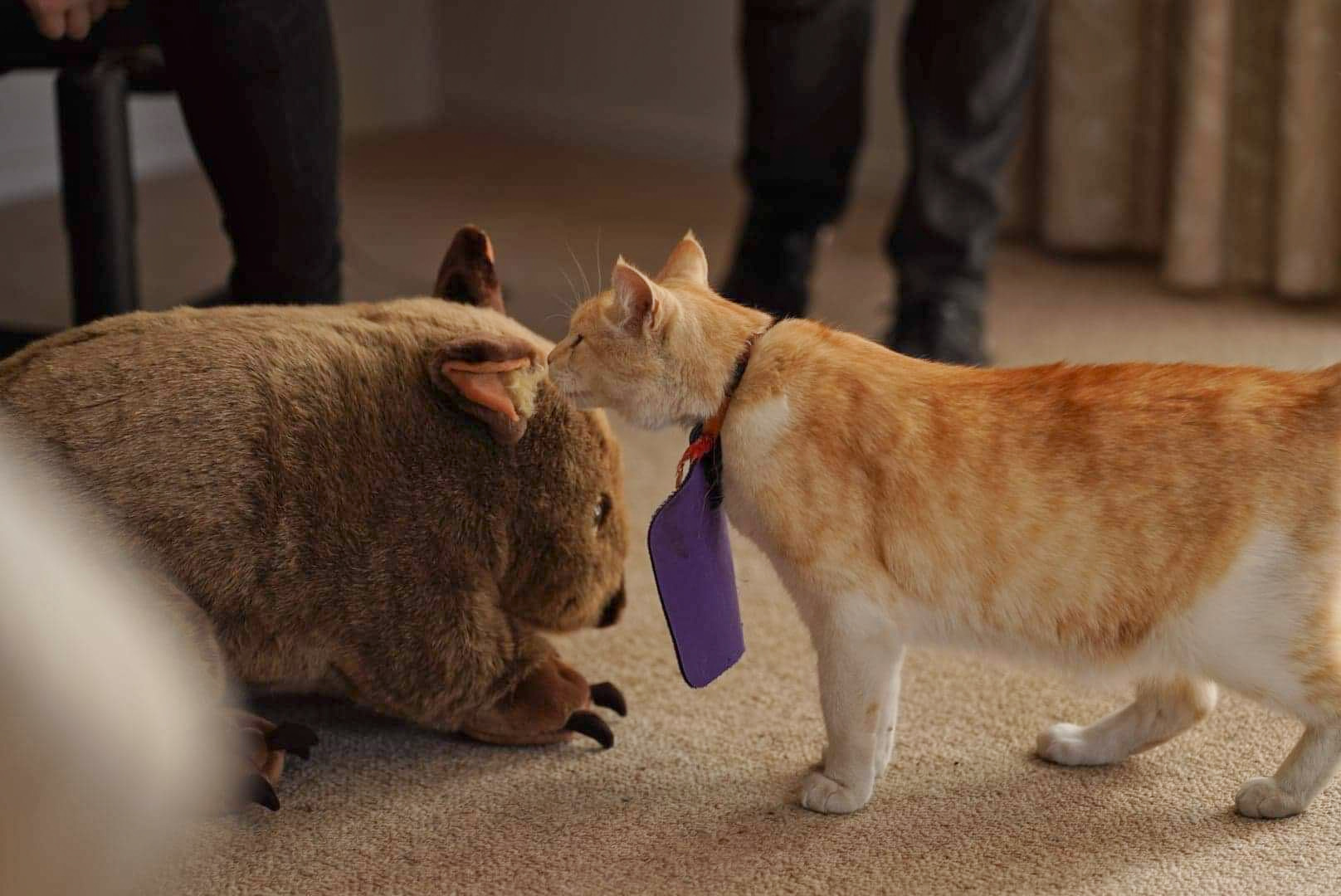My dad was awesome.
He was kind, compassionate, energetic, funny, generous, gentle, inspiring, nurturing, patient, talented and so much more.
Gordon Lindsay Yemm arrived on 23 March 1933 to Olive and Leonard Yemm – and he came bundled with his other half, Norman.
THE TWINS WERE BORN IN ELSTERNWICK
A year later the family moved to Warragul, 100 kilometres east of Melbourne, where they spent the next decade before moving to the inner suburb of Ascotvale to finish out their teenage years.
Gordon and Norman often reminisced about wonderful family holidays in the Victorian coastal town of Kilcunda – a wild and woolly stretch of coastline where their grandfather ran the local camping grounds. Every holiday, the family would make the trek on the old steam train. The boys loved the open air, the beach and sand, and fishing. They returned to Kilcunda throughout their lives and in 2015 Norman’s ashes were spread at a point along the shoreline they called Pop’s rock. One day, Gordon will reunite with Norman and he too will be laid to rest at Kilcunda.
The Yemm home was filled with sport and music, two passions shared by the twins. Every Friday night there was a sing-along with Olive on piano and Leonard on ukulele. By the time they were five Olive was teaching them to play piano while Leonard captained the Warragul VFL side and instilled a passion for sport into both boys.
The twins weren’t interested in education and spent more time throwing paper airplanes than doing homework. Just before their 14th birthday, both boys finished school and took up a seven-year printing apprenticeship.
AROUND AGE 16, GORDON’S GRANDFATHER BOUGHT HIM A SAXOPHONE
This was the beginning of a 70-year love affair with music. He practiced for hours to perfect his technique and it wasn’t long before he added clarinet to his skillset. At 20 the twins were called up for national service where Gordon joined the band. He met musos who became lifelong friends and when national service wrapped up, they created a band performing gigs all around Melbourne.
At this time, the twins were introduced to running. Never backwards in coming forwards, they joined a professional running club before ever setting foot on a track. Working with a coach and doing endless laps around the Port Melbourne football ground, within a few years they were doing rounds of the Victorian racing circuit. They became known as the Good Yemm and the Bad Yemm – because Norman always won and Gordon usually lost. On purpose. For three years he held back and lost, so when the time came and the odds were good enough, he had a high handicap and made some tidy sums betting on the side.
WHEN WESTSIDE STORY DEBUTED IN MELBOURNE, GORDON WAS ASKED TO PLAY IN THE ORCHESTRA
Not only did he need saxophone and clarinet but added flute to his repertoire. He became instantly hooked, declaring it the most beautiful sound of all instruments.
His work required making deliveries around Melbourne in a van. After years of sharing a driver’s licence with Norman, Gordon finally got his own licence. He’d finish deliveries quickly then sit in the back of the van perfecting his flute embouchure.
As the apprenticeship ended, Gordon got a job selling toasters in Myers. It was short-lived because not only was he regularly disappearing for racing meets, but his sales targets weren’t being met. Ever the epitome of kindness, Gordon politely offered sales to other staff members, leaving his own record diminished.
An opportunity arose to play in the West Australian Symphony Orchestra for six weeks. He jumped at the chance to pursue a classical career and after just three years of playing, flew to Perth to fill in as second flute. Soon after, a permanent position with the Tasmanian Symphony arose and Gordon flew to Hobart.
HE WAS NOW A VEGETARIAN
After living near an abattoir, sights and sounds of distressed animals made him realise that killing animals for his consumption was unkind and unnecessary. He never ate meat again. Except one time. When visiting Guatemala in the 1990s, to meet with his foster child, the village put on a feast. Plonked right in the middle was a roasted guinea pig, still with its teeth. For the sake of politeness, he ate the guinea pig and declared it tasted just like the rabbits he’d eaten as a child.
In the early 1960s Gordon met a beautiful young woman called Carrol. Before long they were dating and on 17 December 1964 the couple married. I was born in 1966 and in his customary clumsy manner, he dropped me from the basket as they arrived home from the hospital.
In September 1968, my brother Christian was born and just five weeks later he died from SIDS. At the same time, Gordon had accepted a permanent position as second flute in the Perth orchestra and just weeks after Christian died, we moved across country. Soon after arriving, Gordon was diagnosed with a skin cancer on his lower lip. The surgeon removed the cancer and Gordon awoke from anaesthesia with more than 50 stitches.
HE COULD NO LONGER PRODUCE A PROPER FLUTE SOUND
When he returned to the orchestra a few weeks later, the normally friendly, easy-going man had become – in his own words – very badly behaved. Arguing with colleagues and the conductor. He was called to the office for disciplinary action and lost his job just months after he began.
Still grieving the loss of their baby, and no longer able to perform, in 1969 Gordon and Carrol moved north and bought a toy shop at Nobby’s Beach on the Gold Coast. During this time two more babies were added to the family – Kristin and Vanessa. He was such a fun, good-natured dad – singing and playing with us, or fishing and hiking. His absences during orchestral tours were always keenly noticed. Life-long friend Jo Doughty remembers Gordon being so good with children – playing the flute for ‘musical chairs’ at birthday parties and painting portraits of her children.
WHEN NOT PLAYING HIS INSTRUMENTS GORDON TESTED HIS VOICE, JOINING A LOCAL BAND
I have fond memories of him singing The Pushbike Song and Raindrops Keep Falling on My Head at the Broadbeach pub. His singing career was short-lived when they realised he couldn’t remember a single lyric. In keeping with his famous poor memory, early in his career he performed 99 shows of The Sound of Music. At the end of the season, he could barely play a note from memory.
Gordon found painting bikinis onto Hawaiian dolls and making grass skirts wasn’t enough for his creative talents. He took up painting then became determined to rebuild his musical career. He spent countless hours in front of a mirror, studying the shape of his lips and experimenting with ways to recreate the perfect embouchure. Eventually they moved from the Gold Coast to Brisbane where he performed with the Queensland Symphony Orchestra.
But still, Gordon wasn’t satisfied with his flute sound so, in 1974 the family packed everything they owned, bundled three small children onto a cruise ship and sailed to the Canary Islands.
In Tenerife, Gordon hoped his rudimentary Spanish and the universal language of music would be enough to see him work on foreign soil. This didn’t work out and a few months later he heard the QSO position was still open so returned to Australia. But first, they visited family in Tasmania.
WHILE IN HOBART, GORDON LEARNED THE PRINCIPAL FLUTE POSITION IN THE TSO WAS UP FOR GRABS
He did a late audition and was offered the job. For six years he flourished in this role while nurturing a new generation of flute players through private teaching and the establishment of the Tasmanian Flute Society.
When I turned eight, he handed me a piccolo and my musical career commenced. He wrote in a letter to my grandmother, “Perhaps one day she will sit alongside me as second flute,” and when I was a teenager it came to pass. The local theatre company staged a production of Don Quixote and for my first paid gig, I sat alongside my father as second flute and piccolo. It was one of the proudest moments of my life.
As the years passed, Gordon became aware the tremor he had all his life was impacting his ability to perform professionally. He was offered a permanent teaching position in Lismore and jumped at the chance.
IN 1980 OUR FAMILY MOVED TO BALLINA ON THE NORTH EAST COAST OF NSW
For 25 years Gordon became a much-cherished mentor to flute, saxophone, clarinet and bassoon players, many of his students going on to become outstanding professional musicians. Vernon Hill remembers, “His legacy as both a teacher and a fine musician lives on in a generation of flute players and educators around the country.”
During their many years in Ballina, Gordon and Carrol’s youngest child developed serious mental health issues. It was a time when psychological support was scarce and the family fractured apart. By the end of the 80s their marriage had ended.
As the worsening tremor threatened to end his musical career, not only did Gordon escalate his painting, but he researched surgical options for managing the tremor. He underwent Deep Brain Stimulation which connected electrodes in his brain to batteries in his chest. The success of the surgery saw him return to music, but this time with the added bonus of the WX11 wind synthesiser.
HE COULD NOW PERFORM AS ANY INSTRUMENT AND BECAME A FREQUENT PARTICIPANT IN COMMUNITY CONCERTS
In Lismore, Gordon met a Scotsman called David Urquhart-Jones who was a fine pianist and occasional bagpiper. Over the decades that followed, dad and Dave performed countless times around NSW and Queensland and ran masterclasses for the up and coming generation of musicians. They remained great mates for life.
In 1986, Gordon met a beautiful piano player called Linda at the Macgregor Summer School in Toowoomba and in 1993, they married. As Gordon’s health began to deteriorate in 2019, Linda became a dedicated and stalwart carer for my father. I’ll always be so grateful to Linda for the gentle and loving care she showed throughout their years.
In 2010 the international Wind Midi association held a conference in Las Vegas. Dad wanted company so we flew over only to discover the conference was cancelled. On our first night he walked to a casino to see the AFL grand final on the big screen. On his way back, 77 year old Gordon took a “shortcut” by climbing a fence to get to the hotel. He misjudged the landing and face-planted into the concrete. He came back, blood pouring from his head and said, “I was mugged.” He thought it was so funny.
DESPITE YEARS OF HEALTHY EATING AND PHYSICAL ACTIVITY, IN 2012 GORDON REQUIRED HEART BYPASS SURGERY
At the same time, my sister became terminally ill. He was recuperating from surgery and unable to travel to the Gold Coast to farewell his youngest child when she died.
Between 1988 and 2008, Gordon was presented with his six much-loved grandchildren: Jamie, Conor, Liam, Hamish, Abbigail and Ethan. He was a cherished grandpa, always ready with a hearty laugh or a passionate debate on the benefits of medicinal cannabis.
Even when distance separated them, Gordon and Norman remained extremely close. When together, it was like nobody else was in the room. Norman’s health deteriorated and on 03 February 2015 he passed away. As attendees at the funeral were invited to lay a single flower upon the coffin, Gordon went up, lay his head down and sobbed, “My other half is gone.”
At the end of 2019 Gordon was diagnosed with metastatic melanoma on the liver. He dived into immunotherapy and bought himself a precious year of life. When the second round of therapy began in November 2020, he responded badly and from there his health deteriorated. He rallied before Christmas and the family gathered at South Arm for a precious and joyous Christmas Day. He wore a gold crown as king of the table.
Over the course of four weeks, he became increasingly frail and at 2am on Thursday 28 January, Gordon peacefully passed from this world to the next.
MY FATHER WAS A GENTLEMAN IN EVERY SENSE OF THE WORD
A better man you could not meet.
Like this:
Like Loading...

